
Mr. Blattmachr is a Principal in ILS Management, LLC and a retired member of Milbank Tweed Hadley & McCloy LLP in New York, NY and of the Alaska, California and New York Bars. He is recognized as one of the most creative trusts and estates lawyers in the country and is listed in The Best Lawyers in America. He has written and lectured extensively on estate and trust taxation and charitable giving.
Mr. Blattmachr graduated from Columbia University School of Law cum laude, where he was recognized as a Harlan Fiske Stone Scholar, and received his A.B. degree from Bucknell University, majoring in mathematics. He has served as a lecturer-in-law of the Columbia University School of Law and is an Adjunct Professor of Law at New York University Law School in its Masters in Tax Program (LLM). He is a former chairperson of the Trusts & Estates Law Section of the New York State Bar Association and of several committees of the American Bar Association. Mr. Blattmachr is a Fellow and a former Regent of the American College of Trust and Estate Counsel and past chair of its Estate and Gift Tax Committee. He is author or co-author of eight books and more than 500 articles on estate planning and tax topics.
Among professional activities, which are too numerous to list, Mr. Blattmachr has served as an Advisor on The American Law Institute, Restatement of the Law, Trusts 3rd; and as a Fellow of The New York Bar Foundation and a member of the American Bar Foundation.
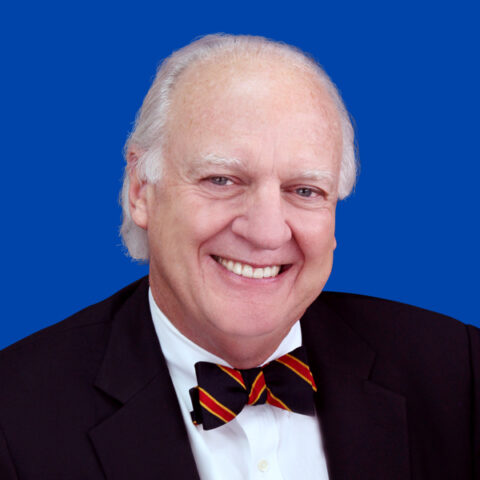
Michael L. Graham is Chairman of InterActive Legal and Practicing law with the Houser Firm in Dallas, Texas.
I believe the work we are doing at InterActive Legal will last beyond my lifetime. Steve Jobs is quoted as saying that he wanted to “make a dent in the universe.” While InterActive Legal may not be Apple (yet), I understand Jobs’ desire to make a lasting impact.
We are at the threshold of massive change in almost every aspect of the practice of law. Technology, artificial intelligence, big data, and intelligence assistance are our daily fare. We understand our client’s need for a flexible, intuitive platform with absolute excellence in function and design. Our partnership with IBM Watson, and our development of an IBM Watson application for seniors, gives us a unique perspective on the future of the practice of law and it is thrilling.
Our commitment is to serve and is evident in everything we do. From personalized online training to specialized CLE to annual symposiums with blockbuster lineups, we serve those who serve. This commitment was established by our founder, Jonathan Blattmachr, and continues today at each and every level of our company.
Now I would like to add a bit of provenance to this biography. I have been continuously Board Certified in Estate Planning and Probate by the Texas Board of Legal Specialization for 40 years. At the tender age of 30, I became a full partner in one of the largest, most respected law firms in the US, Baker & Botts. I was honored by the invitation to become a Fellow of the American College of Trust and Estate Counsel at age 34, and later to have been chosen to be an Academician of the International Academy of Trust and Estate Lawyers. I strongly believe that every lawyer must give back to the practice of law. I have served as Chair of the Texas Bar Association’s Real Property, Probate and Trust Law Section, the Houston Bar Association’s Probate Section, and the Dallas Bar Association’s Probate Section. Other professional contributions include Supervisory Council Member of the American Bar Association’s Real Property, Probate and Trust Law Section and President of the Texas Academy of Probate and Trust Lawyers.
It is my personal mission to provide excellence in the practice of law and best practices for other attorneys. I am fortunate to have the opportunity to work at and achieve these goals through my practice at the Houser Law Firm and at InterActive Legal. This calling, involving my personal practice of faith through the recognition, respect, and love of others, is my heritage and passion. In my current law practice, which coexists with my service to InterActive Legal, I limit my focus to matters involving business and estate planning, administration of estates and trusts, and fiduciary based litigation. I have practiced at both large, international firms and small boutique firms over the last 44 years. I received my J.D., cum laude, from Baylor School of Law (1972), and my BBA from Baylor University (1971). I loved law school, and I love the law.

Teresa Bush joined InterActive Legal in 2007 and serves as Director of Education and Support Services.
Ms. Bush has been licensed to practice law since 1991, and focused her practice exclusively on issues of estate and gift tax planning, probate, charitable planning, and estate and trust administration. She began her practice in a small law firm, planning for clients of all levels of wealth. Thereafter, she practiced for a number of years in the Tax Section of Kelly, Hart and Hallman, P.C. in Fort Worth, Texas, and as an estate and gift tax consultant for the Dallas office of Ernst & Young, in both cases focusing on planning for very high net worth clients.
Ms. Bush received her J.D. from the University of Texas School of Law, where she was a research assistant for Professor Stanley M. Johanson. She studied at Edinburgh University and the London School of Economics prior to obtaining a B.A. in Economics and Political Science from Rice University in Houston. While studying abroad, she worked as an intern for a Member of Parliament in the British House of Commons.
Ms. Bush taught legal research and writing as a Teaching Quizmaster in law school, and later taught estate planning extension courses for American College of Financial Services CLU candidates. She has presented several online webinars on estate planning and drafting topics, and is the author or co-author of a variety of estate planning articles.

InterActive Legal proudly celebrates Elizabeth (“Beth”) Boehmcke on her retirement (2025) and her extraordinary contributions to the estate planning community.
Since joining InterActive Legal in 2018 as Director of Content Development, Beth has brought a rare blend of legal expertise, thoughtful leadership, and genuine kindness to everything she touched. Her deep knowledge of estate planning—including high net worth, cross-border, and asset protection matters, as well as elder law, specifically focusing on asset protection planning for Medicaid and Veteran’s benefits—has helped shape the quality and integrity of our content.
She has exemplified professionalism, compassion, and an unwavering dedication to helping others—both colleagues and clients alike. Beth has been not just a trusted expert, but a joy to work with and a source of encouragement and grace within our team.
We are grateful to have shared in Beth’s journey and we wish her all the very best in this next chapter. Congratulations, Beth!
Elizabeth (“Beth”) Boehmcke joined InterActive Legal in 2018 and served as Director of Content Development until she retired in 2025.
She graduated cum laude from the University of Michigan Law School in 1993. After graduation from law school through 2003, she specialized in high net worth estate planning, with an emphasis on cross-border and asset protection planning, and the representation of fiduciaries managing complex trusts and family businesses.
During her career in New York, she was an associate attorney at both Rogers & Wells (now Clifford Chance) and Hodgson Russ in New York City. After a hiatus in her legal career to care for her children, she resumed her legal career by passing the Virginia bar in 2014 and began working for the Hook Law Center, P.C., where she expanded her estate planning practice to include elder law, specifically focusing on asset protection planning for Medicaid and Veteran’s benefits.
She is a proud graduate of the University of Virginia where she received a B.A. with distinction in Psychology in 1988 and is also a graduate of SUNY-Buffalo where she received an M.A. in Clinical Psychology in 1990.

Mohineet Khosla received her J.D. from New York University School of Law in 2001. Following law school, Mohineet practiced for over a decade at Milbank LLP in NYC.
Her practice included providing sophisticated estate planning advice to high net worth families, both domestic and international. Mohineet has also represented clients in audits before the Internal Revenue Service and fiduciaries on complex estate and trust administration matters.

In her primary role as a HotDocs Developer, Deslin works with the authors and on-staff Content Attorneys to develop and maintain the code that powers the InterActive Legal Suite, Online and Legacy platforms. From customizations and client support to quality assurance, content development and program updates, Deslin’s work is integral to the continual development of our drafting systems.
Deslin earned her Bachelor of Business Administration degree from Pace University, and lives on St. Croix in the US Virgin Islands.

Amanda joined InterActive Legal in August 2020 and serves as a Content Support Specialist. Amanda holds a B.S. in Paralegal Studies, A.S. in Paralegal Studies Magna Cum Laude and a Paralegal Certificate from Liberty University and Bristol Community College.
She has worked as a Paralegal for six years with experience in Estate Planning, Probate of Estates, Estate and Trust Administration, Guardianships, Conservatorships, Health Care Proxy Affirmations and Commitments.

Matt holds a B.A. in Speech Communications and has been InterActive Legal’s Director of Marketing & Sales since August 2016. He brings a Renaissance background and a distinguished sales & creative career to his role at Interactive Legal.
As a former financial sales executive with 14 years’ experience in mortgage banking and financial services, Matt served as the Corporate Sales Trainer to a field force of 75 Loan Officers for a regional bank in the mid-Atlantic area. He pioneered the production of sales training videos in the mortgage lending arena.
“Matt knows how to take a message to the marketplace!” proclaimed the President of the bank that Matt once worked for.
Taking a mid-career sabbatical of sorts, Matt traded in his wingtips for boat shoes when he moved to the Virgin Islands in 2010. He put his 25 years of competitive sailing experience to work as a professional sailing charter yacht Captain in the U.S. & British Virgin Islands. Matt returned stateside in 2014 to pursue a love interest, and landed a job at a Melbourne, FL ad agency, where he won an Addy award for his work producing ads for television.
Since joining InterActive Legal in 2016, Matt and his team have tripled sales volume, and has helped ILS earn the leadership position it presently holds in the marketplace.

Steven Palumbo is currently a Regional Sales Consultant for InterActive Legal and manages the Northeast and Central United States. Steven joined InterActive Legal in 2010 and has over 20 years of experience in the Financial and Information Technology Industries. As Regional Sales Consultant, Steven has responsibility for establishing and maintaining customer relationships and new business development.
Formerly a Director of New Business Development at Doc.IT, a leading provider of document management products in the accounting industry, Steven is comfortable bringing tech solutions to his customers. Prior to that, he held positions at Interwoven and Commerce Clearing House.
Steven holds a Bachelor of Science degree in Business Administration from Rowan University, and lives in southern NJ close to the Jersey Shore and enjoys gardening and playing sports on weekends.

Lisa serves as a Regional Sales Consultant responsible for new business development. She loves the fact that she provides solutions that improve people’s work experience, their livelihood and ultimately their lives.
Lisa joined InterActive Legal in 2009 and has been in the Legal Industry for over 20 years. Prior to working in Legal Services, Lisa worked in Hospitality. When not working at InterActive Legal, she loves reading novels, cooking, traveling and hanging out with her family and their sweet pups.
Lisa was born and raised in Dallas, TX, studied at Texas Tech University and received a degree in Business Administration from the University of Texas at Dallas.

Linda joined InterActive Legal in 2011 and currently serves as our Marketing Program Manager where she uses her creativity and technical skills to analyze data trends, develop marketing campaigns, and design online materials to increase InterActive Legal’s brand recognition and market share. She has over 30 years of experience in data analysis, business management and accounting, software implementation, and online training.
Linda graduated with Cum Laude honors from the University of Central Florida where she earned her Bachelor’s degree in Business Administration with a concentration in Management Information Systems.

Deanne has been with InterActive Legal since 2015 and currently manages Operations and HR matters for the company. She also manages the Customer Relations department, working closely with team members to ensure subscribers receive the white glove support InterActive Legal is known for. She strives to help not just customers but colleagues in exceeding expectations and driving business forward by helping execute the best ideas, policies, and service.
Prior to joining the team, Deanne worked as a professional photographer for over 10 years. She has a wealth of experience in customer service, management, and operational support, and assists on many high-level projects for the company in addition to day-to-day operations. Her eye for the creative has aided her involvement with various past marketing initiatives and coordination of InterActive Legal’s annual sponsorship at the Heckerling Institute on Estate Planning.

Jessica Gay joined InterActive Legal in 2019, fulfilling the newly created role of Customer Support Concierge.
Ms. Gay has over 15 years of experience in the customer service field, with most of her experience being in supporting b2b relationships. As a liaison between businesses she is dedicated to providing reliable, friendly, and professional service to our subscribers.
In her role as Customer Support Concierge, Ms. Gay strives to offer “white glove” service to all our subscribers, being the first point of contact to new subscribers as well as assisting long term subscribers in getting the most out of InterActive Legal.

Ross graduated with a degree in programming and analysis in 2011 and joined the InterActive Legal team in 2012. While his role has shifted numerous times during his time at InterActive Legal, he has always provided support to ILS users and developers.
In his spare time, he plays and designs both tabletop and video games.
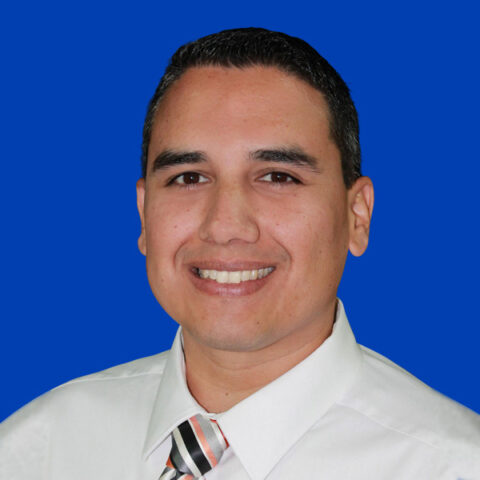
Robert Jones joined InterActive Legal in 2017 starting out on the technical support team and doing testing for the ILS desktop application. After learning more about the software and how subscribers interacted with it, Rob earned a promotion to project management of the framework development. During this time, he developed a plan to move the desktop application to a web application, allowing users to be free of the desktop limitations. Currently, Robert is the Technical Program Manager leading all development for ILS online and legacy editions.
Robert received his Bachelor’s degree in Electronic Media from Abilene Christian University. He went on to work in software testing, design, and development, and project management. He is co-inventor of 3 software patents and has over 15 years of software development experience, from waterfall to agile.
When Robert is not working, he enjoys playing video games with his friends, kayaking, fishing, and enjoying the company of friends and family.

Natalie B. Choate practices law in Boston, Massachusetts, with the firm of Nutter McClennan & Fish LLP. Her practice is limited to consulting on estate planning and retirement benefits matters.
Her books “Life and Death Planning for Retirement Benefits” and “The QPRT Manual” are leading resources for estate planning professionals.
For more information, visit Retirement Benefits Planning
Nutter McClennen & Fish LLP
155 Seaport Blvd.
Boston, MA 02210-2604
617-439-2995
[email protected]

Vanessa Kanaga currently serves as InterActive Legal’s Special Advisor on Estate Planning and Legal Strategy. She is the former CEO of InterActive Legal.
Vanessa received her J.D. from Cornell Law School and holds a B.A. in Philosophy from Wichita State University, as well as an Advanced Professional Certificate from New York University School of Law. She is licensed in New York, Kansas, and Arizona, and currently lives in Arizona.
Prior to joining InterActive Legal in 2013, Vanessa practiced in New York, at Milbank LLP and Moses & Singer LLP, and in Kansas, at Hinkle Law Firm, LLC. She has experience in a range of estate planning matters, including high net worth tax planning and asset protection planning.
In 2024, Vanessa returned to the practice of law. She is an Associate Attorney at Greengard Law Firm, PLC in Phoenix, Arizona.
Greengard Law Firm PLC
2302 North 3rd Street
Phoenix, AZ 85004
602-847-5401
[email protected]

Letha Sgritta McDowell currently serves as InterActive Legal’s Director of Legal Strategy. Letha is an ACTEC Fellow and past president of NAELA, and practices law with The McDowell Law Group. She is licensed to practice in both North Carolina and Virginia and has been an elder law and special needs planning attorney for more than 15 Years. Letha is a Certified Elder Law Attorney, is Board Certified as a specialist in Elder Law by the North Carolina State Bar Board of Legal Specialization, and is accredited to prepare and prosecute claims with the Department of Veterans Affairs.
At InterActive Legal, Letha provides insight into how modern law firms run in order to assist in strategic decisions about how to maximize the tools provided by InterActive Legal, as well as what tools may be useful for practitioners in the future. In addition, Letha contributes to the elder law and special needs planning content in the software and to the InterActive Legal practice management and development tools.
Letha is a member of the Board of Directors for the National Academy of Elder Law Attorneys and the North Carolina Bar Association’s Elder Law and Estate Planning Sections, serves as Vice President of the Elder Law Specialization Committee for the North Carolina State Bar, and serves as an active mentor to a number of young attorneys through the North Carolina Chapter of the National Academy of Elder Law Attorneys. She is a 2001 graduate of Purdue University and a 2004 graduate of the University of Maine School of Law.
For more information, visit The McDowell Law Group.
The McDowell Law Group
8 Juniper Trail, First Floor
Southern Shores, NC 27949
252-390-4690
[email protected]

InterActive Legal Special Advisor on Elder Law Planning
Stephen J. Silverberg is nationally recognized as a leader in the areas of estate planning, estate administration, asset preservation planning and Elder Law. He is a past president of the prestigious National Academy of Elder Law Attorneys (NAELA), and a founding member and past president of the New York State chapter of NAELA.
Silverberg was awarded the credential of NAELA Fellow, the highest honor bestowed by NAELA to “attorneys… whose careers concentrate on elder law, and who have distinguished themselves both by making exceptional contributions to meeting the needs of older Americans and by demonstrating commitment to the Academy.” Silverberg is also a founding member of the New York State chapter of NAELA.
He holds the designation of a Certified Elder Law Attorney (CELA), awarded by the National Elder Law Foundation. There are fewer than 400 CELAs throughout the United States.
For more information, visit his site, the Law Offices of Stephen J. Silverberg, PC

Scott Solkoff is President of Elder Law College and a Florida Bar Board Certified Elder Law Attorney. He is a Past-Chair of The Florida Bar’s Elder Law Section, Past-President of the Academy of Florida Elder Law Attorneys and has also served as a Board Member of the National Academy of Elder Law Attorneys and the Florida State Guardianship Association.
Scott is a Fellow of the American College of Trust and Estate Counsel and the co-author, with his father, of a 1000-page two-volume set, Florida Elder Law Practice Guide, for Thomson Reuters. Scott started Elder Law College as a tribute to his father, Jerome Ira Solkoff, one of the pioneers of the field and Scott’s mentor (and many other lawyers) in Elder Law. Elder Law College provides attorneys with a guided path into the field of Elder Law through its three and a half day “360 Elder Law Practice Builder Program,” a robust Member Portal with hundreds of hours and video and audio for Elder Law training and solution-spotting, regular meetings and seminars and a private listserv. With members from thirty-six states, state chapters have also formed and the organization itself has a state resources section on its Member Portal.
In both his practice and for Elder Law College, Scott’s guiding business principle, instilled by his father, is to do well by doing good and he sees Elder Law as an ideal vehicle for doing so.
For more information, visit Elder Law College, and Solkoff Legal, P.A.
Solkoff Legal
2605 West Atlantic Ave.
Suite A-103
Delray Beach, FL 33445
561-733-4242
[email protected]

BethAnn Boudah Chapman (“Beth”) has practiced law in Juneau for over 30 years in the areas of estate planning, probate, and trust law. Beth also advises small businesses on business transition and other matters. She is an elected fellow and former state chair of the American College of Trust and Estate Counsel (www.actec.org), holds an “AV” rating from Martindale Hubbell Law Directory, and is listed in Super Lawyers. Beth received her BA from Saint Michael’s College and her JD from the University of Oregon School of Law where she was inducted into the Order of the Coif. She is a frequent speaker and author on estate planning issues.
Faulkner Banfield PC
1 Sealaska Plaza
Suite 202
Juneau, AK 99801
907-586-2210
[email protected]

Abigail O’Connor is a trust and estates attorney in private practice in Anchorage, Alaska. Her practice focuses on estate planning and trust administration. She is a Fellow of the American College of Trust and Estate Counsel, Vice President of the Alaska Trust and Estate Professionals, Member of the Executive Board of the Estate Planning and Probate Section of the Alaska Bar Association, and Past President of the Anchorage Estate Planning Council.
O’Connor Law LLC
3601 C Street
Suite 260
Anchorage, AK 99503
907-222-4922
[email protected]
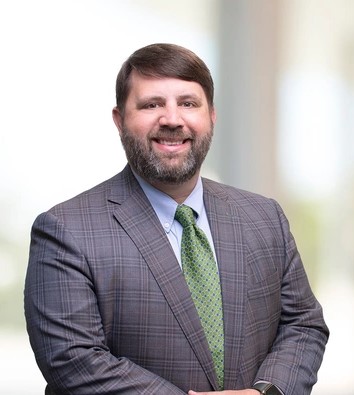
Vince is a Shareholder in Maynard Nexsen’s Estate, Trust, and Business Planning Group. He focuses his practice in the areas of business planning, succession planning, estate planning, taxation, real estate, and probate administration.
With first-hand business ownership experience and having served as Vice President and General Counsel for a family-owned, multi-national operating company, Vince frequently partners with closely-held, family-owned businesses to provide unique solutions to ensure the efficient transfer of ownership to the next generation. He has experience advising clients with a broad range of estate planning and business law matters including sophisticated will and trust drafting; succession planning; charitable planning; choice of entity planning; tax planning; corporate finance; regulatory issues; compliance and risk management; real estate transactions; and mergers and acquisitions. He also represents clients, including trustees, executors, and beneficiaries, involved in probate and trust disputes and litigation. Vince’s industry acumen spans healthcare, manufacturing, entertainment, retail and wholesale, and beverage distribution, among others.
Vince is an adjunct professor at Birmingham School of Law where he teaches Trusts and Estates and Agency and Partnership, and he regularly teaches seminars throughout the state of Alabama in the areas of Estate Planning and Estate Administration. He is American College of Trust and Estate Counsel (ACTEC) Fellow.
He also serves as a Reporter for the Alabama Law Institute Standing Committee on Trusts, where he works with others to draft and update Alabama statutes in the Trusts and Estates area.
Vince holds a B.S. in Management from the University of Alabama. He earned his J.D. from the University of Alabama School of Law and his LL.M in Taxation from New York University School of Law.
Maynard Nexsen PC
1901 Sixth Avenue, Suite 1700
Birmingham, AL 35203
205-254-1106
[email protected]

Ben is the founder and managing partner of the Stonebridge Law, LLP. He began practicing law in 1985 after receiving a Master of Law in Taxation from the University of Florida Levin College of Law.
In 1994, he was awarded the Certified Employee Benefit Specialist designation (CEBS) from the Wharton School of Business and the International Society of Employee Benefit Specialist, the Certified Kingdom Advisor designation in 2005 (CKA®) and in 2011 he became an Accredited Investment Fiduciary (AIF®).
In addition to practicing law for over 39 years as a probate, estate planning and elderlaw attorney, Ben’s experience includes working for a Big 4 accounting firm in the tax department and serving as an officer in an international benefit consulting firm.
He is a member of the Alabama and Tennessee State Bars, the Birmingham Bar Association, The Birmingham Estate Planning Council and the International Foundation of Certified Employee Benefit Specialist
Stonebridge Law, LLP
1800 Providence Park
Suite 250
Birmingham, AL, 35242
205-994-2300
[email protected]

Yaser Ali is a wealth-planning attorney in Tempe, Arizona, and counsels individuals and families with their estate, tax, and charitable planning needs. Yaser is also trained as an Imam and is the co-author of the ABA guide to Estate Planning For the Muslim Client.
Yaser Ali Law
4500 South Lakeshore Drive
Suite 510
Tempe, AZ 85282
480-442-4175
[email protected]

North Scottsdale Tax and Estate Planning Attorney, Kevin A. Ganser, Esq., LL.M. Taxation, is an Arizona and California licensed attorney, and is the Managing Attorney of Ganser Law Offices.
Before returning to his adopted home state of Arizona (where he is a proud resident of the North Scottsdale community), Kevin lived, worked and then attended law school in San Francisco, where he obtained a law degree and a specialized legal master’s degree in Tax (LL.M. in Taxation) at Golden Gate University School of Law — a program consistently named the “Best Tax LL.M. Program” by the respected legal publication “The Recorder”. Prior to starting his own law firm, Kevin worked in the San Francisco and San Mateo County probate courts, and subsequently worked, trained, and was mentored by many of the brightest estate judges and attorneys on the West Coast.
Kevin focuses his practice solely on “private client” services, with a concentration in estate planning, income tax planning, family wealth preservation, probate, trust administration, real estate transactions, business formation and transactions (LLC’s and Corporations), Arizona Transaction Privilege Tax (Arizona TPT), and related California focused practices tailored for on Arizona-based clients dealing with California matters.
In his estate planning practice, Kevin works with a range of estate planning clients. From young families establishing their first estate plan or high or ultra net high worth client or business owners seeking income and estate tax relief, Kevin has the experience (and the backing of a network of highly competent professionals) to solve highly complex legal issues.
Ganser Law Offices
8787 E. Pinnacle Peak Road
Suite 220
Scottsdale, AZ 85255
480-930-5859
[email protected]

Todd Whatley is a Certified Elder Law Attorney by the National Elder Law Foundation. Todd is Past President of The National Elder Law Foundation. He has been in practice since 1999 focusing all but one year of practice to Elder Law. While still running a very busy Elder Law practice, Todd is also the creator of The Elder Law Coach, a national coaching business working with attorneys just getting into Elder Law and attorneys who want to become very proficient in Elder Law and grow their practice and LOVE their work. He is also co-host to two podcasts The Elder Law Coach and the Top 10 Senior related podcast, Answers on Aging.
Todd Whatley, PA
308 SW 24th, Suite 4
Bentonville, AR 72712
479-601-4119
[email protected]
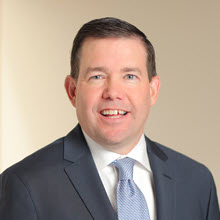
Mike Stiff, Esq., an attorney with BakerHostetler LLP in Denver, Colorado, focuses his practice on estate planning, probate and trust administration. Mike received his law degree from the University of Arizona College of Law in 1995. He is a member of the Colorado Bar Association, Denver Bar Association and the Rocky Mountain Estate Planning Council. Mike is a past president of the Trust & Estate Section of the Colorado Bar Association and former chair of the Trust & Estate Section Statutory Revisions Committee. Mike is also a Fellow of the American College of Trust and Estate Counsel (ACTEC) and listed in Chambers HNW: Private Wealth Law, The Best Lawyers in America and Super Lawyers.
BakerHostetler LLP
1801 California St., Suite 4400
Denver, CO 80202
303-764-4047
[email protected]

Mike Welch is the Chief Executive Officer of InterActive Legal, bringing over two decades of executive leadership and innovation in technology to the company. Known for his entrepreneurial mindset and exceptional analytical skills, Mike transforms complex business challenges into simple, executable strategies that drive performance and growth.
“I believe we are at a pivotal moment in the legal industry,” Mike says. “Technology and innovative business models are reshaping how legal services are delivered. At InterActive Legal, we have the opportunity to make a lasting impact by integrating advanced technology with our commitment to excellence in legal planning solutions.”
Before joining InterActive Legal, Mike was the founder and CEO of Welch Global Consulting, for 20 years he helped technology companies articulate the value of their solutions in terms of tangible business outcomes like revenue growth and cost control. He developed systems in go-to-market strategy, sales, customer experience, and talent development, working with industry leaders such as Cisco, IBM, HP, and AT&T.
With a strong belief in the power of people and systems, Mike focuses on building high-performing teams and delivering exceptional customer experiences. His expertise in leadership, business operations, sales and marketing strategies, and talent development uniquely positions him to lead InterActive Legal into a new era of growth and innovation.
Mike holds a Bachelor of Science degree in Computer Science with a minor in Mathematics from Southeastern University.
“My mission is to leverage my experience in technology and business to enhance the way we deliver software to attorneys,” Mike adds. “I am excited to work with the talented team at InterActive Legal to continue our commitment to excellence and to serve our customers with innovative solutions that meet their evolving needs.”

Deborah J. Tedford is an attorney and principal in the Tedford Law Firm of Mystic, Connecticut. She graduated from Yale University, cum laude in 1972 as a member of one of the first classes to include women, and from Boston University School of Law in 1976. She is also a qualified mediator, having completed 40 hours of formal mediation training.
Deb was elected as an ACTEC fellow in 1992, a fellow of the Connecticut Bar Foundation in 1995; and a fellow of the American Bar Foundation in 2012. She recently served three years as Chair of the Elder Law Committee of ACTEC and is a Regent of the College. She is a member of ACTEC’s Fiduciary Litigation Committee and has served on a number of other administrative committees for the college.
Currently she is serving as ACTEC’s observer to the Uniform Law Commission’s re- writing of the national guardianship and conservatorship act.
Deb is a frequent speaker at the state and national levels on topics related to the field of trust law, including special needs trusts, estate and gift taxation, social security and undue influence in probate matters.
Tedford Law Firm PC
11 Mason’s Island Rd.
Mystic, CT 06355
860-572-4707
[email protected]

Alan S. Gassman is the founder of the Clearwater, Florida law firm of Gassman, Crotty and Denicolo, P.A., which focuses on the representation of high net worth families, physicians and business owners, and their companies in estate planning, taxation, and business and personal asset structuring.
Mr. Gassman is the lead author on Bloomberg BNA’s Estate Tax Planning in 2011 and 2012, Gassman and Markham on Florida and Federal Asset Protection Law, Florida Law for Tax, Business & Financial Planning Advisors, Eight Steps to a Proper Florida Trust and Estate Plan, A Practical Guide to Kickback & Self-Referral Laws for Florida Physicians, The Florida Power of Attorney & Incapacity Planning Guide, The Florida Advisor’s Guide To Counseling Same Sex Couples, and a co-author of the recently published Legal Guide To NFA Firearms and Gun Trusts, among others.
Mr. Gassman is a frequent speaker for continuing education programs, and has published well over 200 peer reviewed articles with publications such as Bloomberg BNA Tax & Accounting, Trusts and Estates Magazine, Estate Planning Magazine, The Florida Bar Journal, and Leimberg Estate Planning Network (LISI). He is also a past President of the Pinellas County Estate Planning Council and has co-chaired two annual Florida Bar programs for over fifteen years: Wealth Protection and Representing the Physician.
Mr. Gassman holds a law degree and a Masters of Law degree (LL.M.) in Taxation from the University of Florida, and a business degree from Rollins College. Mr. Gassman is board certified by the Florida Bar Association in Estate Planning and Trust Law, has the Accredited Estate Planner designation from the National Association of Estate Planners & Council, has maintained an AV rating from the Martindale-Hubbell for over 20 years and is listed in both Best Lawyers in America and Florida Super Lawyers.
Gassman, Crotty & Denicolo, P.A.
1245 Court Street
Suite 102
Clearwater, FL 33756
727-442-1200
[email protected]

With 14 years of practical experience under her belt, Neeli understands that a well-drafted plan must not only be legally sound but also tailored to fit seamlessly within the unique dynamics of each family. Her journey began in India, and at the age of 13, she relocated to Hartselle, Alabama, bringing with her a wealth of life experiences, including the early loss of her father at the tender age of 2. This early encounter with life’s uncertainties and the complexities of a blended household ignited her deep appreciation for the critical importance of estate planning.
Above all, Neeli holds family and relationships in the highest regard and believes that proper planning can help families maintain strong bonds for many generations. Her personal background affords her a unique perspective, enabling her to serve her clients with an unparalleled comprehensive view that often transforms these professional relationships into enduring friendships.
With 14 years of experience in the Trusts and Estates industry, she has represented numerous individuals, families, small businesses, and non-profit organizations. Neeli strives to not just be an attorney, rather a trusted partner and advisor dedicated to making sure your family is protected for generations to come.
The Law Offices of Neeli Shah, LLC
3350 Riverwood Parkway, Suite 1900
Atlanta, GA 30339
404-988-4922
[email protected]

Adam focuses his practice on the representation of individuals, small businesses, and institutions in estate planning, fiduciary litigation, probate administration, business law, and real estate litigation.
He regularly practices in probate and state courts, and is often appointed by probate courts to serve as an appointed attorney for proposed wards in guardianship and conservatorship proceedings or as a guardian ad litem for minors/incapacitated adults in estate proceedings.
Active in the estate planning/probate bar, he is often asked to teach Continuing Legal Education classes on probate topics. He is an active member of the State Bar of Georgia’s Fiduciary Law Section, the Savannah Estate Planning Council, and the National Association of Elder Law Attorneys.
Walters Law P.C.
100 Blue Fin Circle Suite 1
Savannah, GA 31410
404-988-4922
[email protected]

Joy Miyasaki is a partner in the firm’s Honolulu Office and a member of its Tax practice group. Her practice encompasses all aspects of tax and estate planning, charitable planning, guardianships and conservatorships, estate and trust administration, will, probate and trust disputes, and tax controversies. She serves a broad range of clients, from diverse backgrounds and levels of wealth, including high net worth individuals and families. She draws on her background as a trial attorney with the Office of Chief Counsel, Internal Revenue Service, in Newark, New Jersey; an associate and then partner with Connecticut and New York-based private client law firm, now known as Withers Bergman LLP; working in a family business after moving home to Honolulu; and then starting and operating her own business. She joined Carlsmith Ball as a partner in 2018.
Joy is a Fellow of The American College of Trust and Estate Counsel. She is ranked in Band 1 for Private Wealth Law in Chambers & Partners. Chambers says: Joy is “known for handling complex and high-value estates matters.” Chambers sources say: Joy is “terrific” and “a go-to person for gnarly issues,” she is “an exceptional tax attorney and very good to work with.” She is listed in The Best Lawyers of America. She was named Best Lawyers Honolulu Lawyer of the Year in tax litigation and controversy in 2015 and 2024, tax law in 2017, and trusts and estates in 2012 and 2018. She has taught estate planning as an adjunct professor at the William S. Richardson School of Law for over 20 years.
Joy is an active participant in professional and community affairs and a frequent speaker for professional and community organizations. She has served as President of the Hawaii Estate Planning Council; Chair of the Hawaii State Bar Association’s Tax Section and Probate and Estate Planning Section; a member of the Disciplinary Board of the Hawai’i Supreme Court; and a Court-appointed member of the State of Hawai’i Committee on the Uniform Probate Code and Probate Court Practices. She has served as Chair of the Governor-appointed Policy Advisory Board for Elder Affairs.
Carlsmith Ball LLP
733 Bishop Street, Suite 2525
Honolulu, HI 96813
808-523-2500
[email protected]

Attorney, Kimmer W. Callahan, is the owner and founder of Callahan & Associates, Chtd. He established Callahan & Associates, Chtd. in 1998 with the goal and purpose of helping the general public through the various risks and traps that exist in the world of estate and family planning. His goal is to meet each client where they are, and to help them learn and understand the risks and issues they face, while they help him understand what their goals and desires are. Together, we develop a comprehensive, straight-forward estate plan – so that his client’s can have the “Peace of Mind” of knowing that their affairs are in order.
Kimmer’s planning practice focuses on helping families, from the baby boomers to those with young children, preserve and protect their wealth through comprehensive, personalized estate planning and counseling. He services his clients by listening to his clients – helping them discover their goals and desires, so that they leave behind a true legacy. He helps the elderly prepare for the possibility of needing long-term care, without having to spend their nest egg. He also helps young families prepare for the tragic possibility of needing to pass the care of their children to another person through comprehensive “Peace of Mind” Protection for Kids planning.
Kimmer is a graduate of Gonzaga University’s School of Law, and holds a Master of Law’s Degree in Taxation from the University of Denver. He is a frequent speaker helping to educate the public about estate planning and living trusts through free public seminars, as well as a guest speaker for financial planners and other professionals.
Kimmer is licensed in the states of Idaho, Washington, and Colorado. He is also licensed to practice before the United States Tax Court. Kimmer is a member of the National Academy of Elder Law Attorneys, the past president of the Coeur d’Alene Estate Planning Council, Member of the Idaho Bar Association’s Section on Taxation, Probate and Trusts, and the Washington State Bar Association’s Section on Taxation, Probate and Property.
Callahan & Associates, Chtd.
P O Box 2226
Coeur d’Alene, ID 83816
208-664-9228
[email protected]

Dana is an experienced attorney specializing in civil litigation, matrimonial issues, real estate, and income tax planning. She assists closely held businesses with planning and guides clients through estate and trust administration, tax strategies, and representation in audits. Dana holds a JD and BA from Valparaiso University and attended the Heckerling Estate Planning Institute. Since 2011, she has been an Associate lawyer in Elgin, Illinois, building upon a decade of experience at Valparaiso School of Law. She is a member of the Illinois and Kane County Bar Associations and active in several professional and business networks.
Dana has been a member of Dynamic Women Professional Network (DPWN) since June 2011. DPWN has positioned itself to be a very functional platform for women to develop the valuable connections necessary to grow in their professional as well as personal lives. Dana has been a member of the Northern Kane County Chamber of Commerce since November 2011. The Northern Kane County Chamber of Commerce (NKCCC) is an advocate for commerce, industry and development in the northern Fox Valley villages of Carpentersville, East Dundee, Gilberts, Sleepy Hollow and West Dundee. Its mission is identifying and fulfilling the needs of the business community through leadership, education, support and promotion. As a member of the Kane County Chamber of Commerce, Dana decided to join Business Power Connections in November 2011.
Dobosz Law Offices, P.C.
2175 Point Blvd., Suite 150
Elgin, IL, 60123
847-628-8308
[email protected]

Michelle is a graduate of Purdue University and the Indiana University Maurer School of Law. Prior to joining Gordon & Associates P.C. in 2013, Michelle served as a law clerk at the Indiana University Foundation, as a legal intern at Trilegal – a law firm based in Delhi, India, focusing on international business transactions – and she worked directly with a legal advocate of the Supreme Court of India. In addition to working at Gordon & Associates, Michelle recently accepted a position with Purdue University to teach the course, Legal Issues in Modern Society. At Gordon & Associates, she focuses her practice on estate planning, long-term care planning, and agriculturally-related business issues. Michelle is well prepared to consult with you in these areas of law and will work to develop a plan personally designed for your needs. A native of Fulton County, she currently resides with her husband, Jerod, and their son and daughter in Adams County.
Gordon and Associates, P.C.
119 East Oak Forest Drive
Bluffton, IN 46714
260-824-9377
[email protected]

Doyle D. Sanders is an attorney and shareholder with Bradshaw, Fowler, Proctor & Fairgrave, P.C., with offices in downtown Des Moines and an office in Johnston since 1985. He is licensed to practice law in the state of Iowa. He is a Fellow of the American College of Trust and Estate Counsel (ACTEC) and practices primarily in wills, trusts, estate planning and probate law. He has been selected for inclusion in Iowa Super Lawyers and Great Plains Super Lawyers.
Mr. Sanders is a native of Vinton, Iowa, and received his Bachelor of Arts degree in political science, his Masters of Business Administration, and his Doctor of Jurisprudence with Honors from Drake University.
He is a member and former chair of the Iowa State Bar Association Probate Section; and as a member of the legislative committee, he has drafted numerous legislative changes to the Iowa probate and trust codes.
He was elected to the American College of Trust Estate Counsel in 2004 and serves on the ACTEC Employee Benefits Committee and the Elder Law Committee. He is a member of the ABA Probate and Trust Law Section and the Mid-Iowa Estate and Financial Planners Club.
His interest in charitable giving and how it can be implemented in estate planning led him to assist in the founding of the Mid-Iowa Planned Giving Council, the Johnston School Community Foundation, the Valley UMC Foundation, and the Service Above Self Foundation of the Rotary Club of Northwest Des Moines and others. He has served as his Rotary Club’s Foundation chair for many years and is chair of the Rotary District 6000 Endowment Committee.
Dickinson, Bradshaw, Fowler & Hagen, P.C.
801 Grand Avenue
Suite 3700
Des Moines, IA 50309
[email protected]

Mr. Fry is a member of the American College of Trusts and Estate Counsel (ACTEC), and is the ACTEC Kansas State Chair. He has over 40 years of experience in drafting and implementing estate plans and advising clients with respect to the numerous business, personal, tax and litigation issues that invariably arise. He assists clients in all aspects of estate planning and probate issues, as well as the related income, gift, estate, and generation skipping transfer tax issues. With respect to assisting clients in estate planning, he counsels clients in developing estate plans that fit their family and financial situations, including drafting wills and trust agreements from the simple to the complex. With respect to probate related matters, he works with all aspects of decedents’ estates from probate procedure and litigation to preparation of complex estate tax returns and representation of fiduciaries, heirs and beneficiaries in probate court and before the Internal Revenue Service. With respect to assisting clients in tax related matters, he counsels clients in methods to minimize income, gift, estate and generation skipping transfer tax liabilities over multiple generations through the use of multiple transfer techniques. He also works with clients in business matters, including organization, mergers and acquisitions, and tax audit and litigation matters, both before the Internal Revenue Service as well as the Tax Court and Federal court system.
Mr. Fry was born in Wichita, Kansas. He attended Kansas State University and graduated with a degree in Electrical Engineering. He attended Southern Methodist University Law School in Dallas, Texas as a recipient of the Hatton W. Sumners Scholarship. After graduation from law school, Mr. Fry practiced law in Houston, Texas for 10 years with the law firm now known as Locke Lord. Mr. Fry is rated “AV” by Martindale-Hubbell Law Directory, and has been selected for inclusion as a “Missouri & Kansas Super Lawyer” for the years 2006 to present.
Chambers High Net Worth (HNW) Guide for Private Wealth Law-Kansas has included the following comment: Theron Fry of Triplett Woolf Garretson, LLC is well regarded, with a “good reputation” in Kansas. Fry acts on estate planning, income and gift tax issues and the drafting of wills and trusts. Fry is described by a local source as a “very good attorney” who “works with a lot of high net worth individuals.”
Triplett Woolf & Garretson LLC.
2959 N Rock Road
Suite 300
Wichita, KS 67226
316-630-8100
[email protected]

Attorney Melissa Rodden-Mays is a Louisville based attorney with over 20 years of legal experience. She is licensed in both Kentucky and Indiana.
Melissa assists people and their families with life and legacy issues such as probate, guardianship, estate planning (both basic and advanced), asset preservation, Medicaid qualification and VA Aid & Attendance, and special needs trusts.
Formerly, she practiced for the UAW Ford Legal Services Plan for 16 years, assisting UAW members with probate, estate planning, guardianship, and family law. Before that she worked for the KY Protection and Advocacy Division, advocating the legal rights of individuals with disabilities. She remains on the advisory board of the Protection and Advocacy PAIMI council (Protection and Advocacy for persons with Mental Illness).
Melissa is Accredited By:
Law Office of Melissa Rodden Mays
1939 Goldsmith Lane, Ste. 152
Louisville, KY 40218
502-805-1133
[email protected]

Meghan is a partner at Brann & Isaacson, which has offices in Lewiston and Portland, Maine. She focuses on estate planning, estate and trust administration, and real estate. She provides practical and efficient solutions to her clients to help them achieve their goals and plan for both the expected and the unexpected.
Meghan crafts customized estate plans for clients at all stages of life, whether they are young families concerned with establishing guardians for their children or older individuals planning for the ultimate distribution of their assets. Meghan’s estate planning services include creating wills, trusts, durable financial powers of attorney, and advance health care directives. In addition, she compassionately guides clients through the estate administration and probate process.
Meghan further assists individuals and families with intrafamily property transfers, including establishing family real estate LLCs, and real estate transactions. Her close attention to detail is of particular value to her clients, as are her skills in navigating complex title histories and intricate estate plans.
Brann & Isaacson
P.O. Box 3070
Lewiston, ME 04243
207-783-9325
[email protected]

Smilie Rogers is a founding partner of Brennan & Rogers, PLLC, with offices in Maine in York, Kennebunk, and Portland. The attorneys of Brennan & Rogers, PLLC limit their practice to estate planning, elder law, and estate/trust administration. Smilie graduated from the University of Oregon School of Law and the University of Washington School of Law (LL.M in taxation). He is a former attorney-adviser to Judge Carolyn P. Chiechi at the US Tax Court. Smilie is licensed to practice law in Maine, New Hampshire, and Massachusetts.
Brennan & Rogers
279 York Street
York, ME 03909
207-361-4680
[email protected]
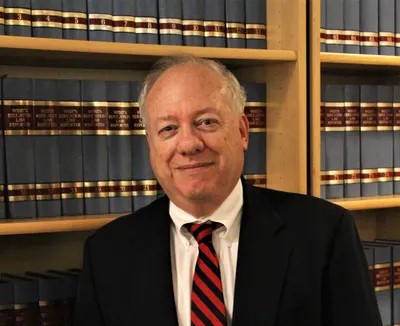
Attorney Matthew Bogin has over thirty-five years of dedicated service in the legal field, devoting his career to supporting families across the D.C. metropolitan area, addressing their unique legal needs with compassion and expertise. His practice places a special emphasis on estate planning. His passion lies in championing the rights of special needs clients, ensuring they receive the tailored advocacy they deserve.
Matthew has been recognized as one of the top-rated estate planning and probate attorneys in Chevy Chase, Maryland. His legal education was completed at the prestigious Georgetown University Law Center. He is licensed to practice in Maryland, the District of Columbia, and Virginia.
Matthew’s commitment to excellence in the legal profession has been acknowledged through his selection for recognition by Super Lawyers from 2014 to 2019.
Law Office of Matthew B. Bogin
5454 Wisconsin Avenue Suite 760
Chevy Chase, MD 20815
301-656-1755
[email protected]

Attorney Brandon L. Campbell is an attorney admitted to practice in Massachusetts and New Hampshire. He is the president of North Shore Planning, P.C. with offices in Beverly and Newburyport, Massachusetts and practices elder law, estate planning, special needs planning, and estate administration. He holds a JD from New England Law Boston (2000) and an LL.M. from Western New England University School of Law (2017). In 2017, the Massachusetts Committee for Public Counsel Services presented him with the Paul J. Liacos award for his work representing the mentally ill. He resides in Beverly with his wife of over 20 years, Jen.
Northshore Planning PC
100 Cummings Center, Suite 542-K
Beverly, MA 01915
978-745-5551
[email protected]

2025 Emeritus:
InterActive Legal extends our heartfelt congratulations to Melvin Warshaw, on his remarkable career and retirement! With more than 40 years of experience in U.S. estate and international tax planning, Melvin has been a guiding force in cross-border wealth transfer for clients around the globe.
From his early days at the IRS to senior roles at McDermott Will & Emery and JP Morgan, Melvin’s leadership and insight have shaped the field. His continued solo practice has supported clients worldwide with exceptional care and expertise.
We’re honored to have worked alongside Melvin and wish him all the best in his well-earned retirement.
Melvin A. Warshaw has more than 40 years experience as a U. S. estate planning and tax lawyer. He currently represents U. S. and non-U. S. high net worth individuals, families and companies on a wide range of personal and business tax matters, especially in connection with cross-border income and estate tax planning and compliance in the U. S. He is admitted to practice in the Commonwealth of Massachusetts in the U.S.
Mr. Warshaw’s legal career has included a variety of different roles in the field of sophisticated international wealth transfer and estate planning. He is a past partner of McDermott Will & Emery’s highly regarded Private Client Department, having established the Boston office practice in 1997. He also served as a senior wealth advisor in JP Morgan Private Bank’s Boston and Greenwich CT offices. He was also formerly general counsel to a large national brokerage that focused on delivering liquidity planning strategies and he has a strong understanding of the array of onshore and offshore life insurance products. Mr. Warshaw began his legal career in the Office of the General Counsel at the Internal Revenue Service National Office in Washington, D.C.
At present, Mr. Warshaw is in sole practice working from his home offices in Wellesley and Stockbridge, Massachusetts. His clients reside throughout the world from India, Singapore, China and Hong Kong to the Caribbean and throughout Europe and in Israel.
Mr. Warshaw is a Fellow of The American College of Trust and Estate Counsel, an Academician of The International Academy of Estate and Trust Law, a Fellow of the Massachusetts Bar Foundation, a longtime member of the American Bar Association Real Property and Probate Section, International Committee of the Income and Transfer Tax Planning Group, a Full Member (TEP) of the Society of Trust and Estate Professionals (STEP), a current member of the Boston Probate and Estate Planning Forum and a current member if the International Bar Association (IBA) Private Client Tax Committee.

Salvatore J. LaMendola, Esq. has been a member of the Trusts and Estates Practice Group at Giarmarco, Mullins and Horton, P.C. since 1996. Sal received his J.D. from the Notre Dame Law School and holds a B.B.A. from the University of Notre Dame. His main practice areas are general estate planning; amending irrevocable trusts through trust decanting, exercises of power of appointment, and other techniques; pre-death and post-death planning for IRAs and other retirement plans; and charitable planning with charitable remainder trusts, charitable lead trusts, and private foundations. Sal is a member of the Probate & Estate Planning Section of the State Bar of Michigan. He is also a regular continuing education presenter for legal education webinar providers Rossdale of Miami, FL and Strafford of Dallas, TX. He also serves on Strafford’s Estate Planning Advisory Board and on the InterActive Legal Practice Advisory Board.
Giarmarco Mullins & Horton PC
Tenth Floor Columbia Center
101 West Big Beaver Road
Troy, MI 48084
248-457-7001
[email protected]

Michael Sampson is Chair of the Estate Planning Group at Minneapolis-based law firm Maslon LLP and a fellow of The American College of Trust and Estate Counsel (ACTEC). Michael’s legal practice focuses on high-end estate and tax planning, estate and trust administration, charitable planning, and business succession planning. Michael helps his clients focus on what it is they really want to accomplish with their wealth and then develop and implement wealth transfer strategies that are consistent with their goals, cash flow needs, and tolerance for risk.
Maslon LLP
3300 Wells Fargo Center
90 South Seventh Street
Minneapolis, MN 55402
612-672-8342
[email protected]

Gray Edmondson is a partner of Edmondson Sage Allen, PLLC in Oxford, Mississippi. He practices in the areas of partnership, corporate, and individual tax planning; business transactions including mergers and acquisitions; business planning, including contract negotiation, review, and drafting; tax controversy; estate and wealth transfer planning; probate; estate and trust litigation; asset protection; and charitable planning. Mr. Edmondson has conducted, authored, and directed numerous seminars for professional, academic, and civic groups on taxation, business, asset protection, and estate planning. He is an adjunct professor at the University of Mississippi School of Law, a Fellow of the American College of Trust and Estate Counsel (serving as Mississippi State Chair and on the Asset Protection (Chair) and Business Planning Committees), member of the Mississippi Bar Association, member of the Mississippi Bar’s Tax Section, member of the Mississippi Bar’s Business Law section, Past President of the Mississippi Bar’s Estates and Trusts Section, and is admitted to practice before the U.S. Tax Court, the U.S. Federal District Courts for the Northern and Southern Districts of Mississippi, and all Mississippi Courts. Mr. Edmondson earned his B.A., cum laude, and his B.P.A., cum laude, at the University of Mississippi; his J.D., cum laude, at the University of Mississippi School of Law; and his LL.M. (Taxation) at the New York University School of Law.
Edmondson Sage Allen PLLC
402 Enterprise Drive
Oxford, MS 38655
662-371-4110
[email protected]

Rick Baskett is an Attorney and CPA, and a Member of Christian, Samson & Baskett, PLLC in Missoula, Montana, which he joined after 27 years of solo practice. He is a Fellow of the American College of Trust & Estate Counsel. He worked in the tax department of Price Waterhouse (now PriceWaterhouseCoopers) in New York City and Baltimore, Maryland, as general counsel for Washington Corporations (now The Washington Companies), and for tax law firms in Baltimore and Washington, D.C. He has been adjunct lecturer of Partnership Taxation at the University of Montana School of Law and has spoken at various continuing education courses on tax and estate planning topics.
Christian, Samson & Baskett, PLLC
310 W. Spruce Street
Missoula, MT 59802
406-721-7772
[email protected]

Kent Endacott is a principal at Endacott Timmer, a boutique estate planning law firm based in Lincoln, Nebraska. With nearly 30 years of experience, Kent works with clients to build comprehensive estate plans tailored to the client to ensure estates and businesses transition to successive generations in a careful and tax-efficient way. Kent has extensive experience in IRS matters and has successfully represented clients in the U.S. Tax Court. In addition to Nebraska, Kent holds licenses in South Dakota and Iowa and has clients in those states.
Kent has been a member of the American College of Trust and Estate Counsel (ACTEC) since 2008. ACTEC is a nationwide organization comprised of over 2,400 attorneys who must be peer-elected based on their skill and experienced in the preparation of wills and trusts, estate planning, probate procedure and the administration of trusts and estates. Lawyers are elected to the organization based on their outstanding reputation, exceptional skill, and substantial contributions to the field. In addition to being a member of ACTEC, Kent has served as both a state and regional chair for ACTEC. Kent also serves on the Great Plains Federal Tax Institute, which provides professional development for attorneys, CPAs, and other tax professionals, and previously served as chair of its board. Kent graduated cum laude from Creighton University’s School of Law.
Endacott Timmer PC LLO
3201 Pioneers Blvd
Suite 300
Lincoln, NE 68502
402-817-1000
[email protected]

Patrick Timmer is a principal at Endacott Timmer, a boutique estate planning firm based in Lincoln, Nebraska. With more than 25 years of experience, Pat works closely with clients to ensure that their present and future personal, financial, and philanthropic objectives are accomplished in the most tax-efficient way. He assists clients with fundamental estate planning, such as wills, trusts, healthcare powers of attorney, durable powers of attorney, and through complicated asset transfer and company succession planning. He represents individuals in all aspects of wealth transfer planning, including advanced planning techniques, business succession planning and estate planning for complex assets such as business interests. Patrick is admitted to the U.S. Tax Court and has successfully represented clients before the court on tax controversy matters. He was also part of a committee appointed by the legislature to study and recommend changes to the Nebraska Uniform Trust Code.
Patrick has been a member of the American College of Trust and Estate Counsel (ACTEC) since 2008. ACTEC is a nationwide organization comprised of over 2,400 attorneys who must be peer-elected based on their skill and experienced in the preparation of wills and trusts, estate planning, probate procedure and the administration of trusts and estates. Lawyers are elected to the organization based on their outstanding reputation, exceptional skill, and substantial contributions to the field. Patrick was named the Best Lawyers® 2023 Trusts and Estates “Lawyer of the Year” in Lincoln. In addition to Nebraska, he is licensed to practice in South Dakota, his native state. He is a graduate of the University of Nebraska College Of Law.
Endacott Timmer PC LLO
3201 Pioneers Blvd
Suite 300
Lincoln, NE 68502
402-817-1000
[email protected]

Mary Vandenack brings extraordinary energy and focus to her work for clients. A founding member and the firm’s managing partner, Mary is an expert in the interrelated areas of tax, business, real estate, health care, private wealth, estate planning, business succession planning and asset protection planning. Acting as outside legal counsel for closely held businesses in conjunction with the ability to proactively address the legal issues of business owners is an area of special expertise. Mary is an innovator in the integration of technology into the practice of law. Under Vandenack’s guidance, the firm has been on the leading edge of client service and technology. Mary won the American Bar Association James I. Keane Award, presented at Techshow 2015, in recognition of her efforts in the area of e-lawyering.
Vandenack Weaver Truhlsen LLC
17007 Marcy St., Suite 3
Omaha, NE 68118
402-504-1300
[email protected]

Layne T. Rushforth is a trust and estate attorney, with over 40 years of experience in Utah (since 1978) and Nevada (since 1981). A Brigham Young University alumnus (B.A., J.D., cum laude), Layne is a Fellow of the American College of Trust and Estate Counsel (ACTEC) since 1990, and previously served as Nevada State Chair. He founded Rushforth Firm Ltd. and contributed to Nevada’s trust and estate legislation as a long-time member of the State Bar of Nevada’s Probate and Trust Section Legislative Committee. Guided by the Golden Rule, he prioritized cost-effective client solutions and encouraged non-litigious resolutions. He holds an AV/Preeminent rating from Martindale-Hubbell since 1990.
Rushforth Firm Ltd.
5550 Painted Mirage Rd.
Suite 320
Las Vegas, NV 89149
702-255-4552
[email protected]

Ben practices in the interrelated areas of probate litigation, elder law (including Medicaid eligibility), and estate planning. Ben represents clients in probate disputes involving incapacitated adults or following the death of a loved one. Ben is sensitive to the emotionally-charged aspects of such matters, creative in reaching a negotiated or litigated resolution, tenacious when necessary, and efficient in avoiding unnecessary litigation costs. He tries cases before both state courts and the federal court in New Hampshire, and has handled appeals of lower court decisions.
Ben also assists clients with estate planning, focusing on the needs of the elderly, retirees and near-retirees, high net worth clients, clients with special needs, same-sex couples, and young families. Ben practices in New Hampshire and Massachusetts and can advise clients whose personal affairs spread across multiple states. Ben drafted and successfully advocated for passage of legislation that substantially simplified the administration of uncontested New Hampshire estates with multiple beneficiaries.
Ben also serves as in-house ethics counsel for Shaheen and Gordon, and has served as a voter protection attorney in every federal election cycle beginning in 2012.
Prior to joining Shaheen and Gordon, Ben was the William J. Brennan Fellow at the national office of the American Civil Liberties Union, where he worked in the Speech, Privacy, and Technology Project. Ben also clerked for the Honorable Janet C. Hall of the U.S. District Court for the District of Connecticut and the Honorable William A. Fletcher of the U.S. Court of Appeals for the Ninth Circuit.
Shaheen & Gordon
107 Storrs Street
Concord, NH 03302
702-255-4552
[email protected]

Martin M. Shenkman is an attorney in private practice in Fort Lee, NJ, and New York City. His practice concentrates on estate and tax planning, planning for closely held business, and estate administration.
Mr. Shenkman is an author of over 42 books and more than 1,000 articles. He is an editorial board member of Trusts & Estates Magazine and the Matrimonial Strategist, and an advisor for InterActive Legal. He is the recipient of many awards including being a 2013 recipient of the prestigious Accredited Estate Planners (Distinguished) award from the National Association of Estate Planning Counsels.
Mr. Shenkman was named Financial Planning Magazine 2012 Pro-Bono Financial Planner of the Year for his efforts on behalf of those living with chronic illness and disability. Investment Adviser Magazine featured him on the cover of its April 2013 issue naming as the lead of their “all-star lineup of tax experts.”
Martin M. Shenkman PC
Parker Plaza, 12th Floor
400 Kelby Street
Fort Lee, NJ 07024
201-845-8400
[email protected]

Deirdre R. Wheatley-Liss divides her practice between representation of business owners and their businesses, counselling individuals and families, and advising non-profit entities. Ms. Wheatley-Liss counsels business owners on legal and structural issues related to start-up, financing, growth and exit strategy. As a tax attorney, she always keeps an eye on minimizing a business owner’s “silent partner” – the IRS. She also advises on director and officer (D&O) liability issues, including business succession and break-ups. By creating the most efficient organizational structures and contractual arrangements during the infancy and growth of a business she has helped clients keep hundreds of thousands of dollars in their pockets upon the sale of the mature business. To educate both the public and the legal community about issues relating to business ownerships, Ms. Wheatley-Liss is a frequent lecturer to professionals and the public on topics related to start-up, intellectual property, employee and independent contractor issues, wealth transfer, tax minimization, business succession planning and cybersecurity.
Porzio Bromberg & Newman PC
100 Southgate Parkway
Morristown, NJ 07962
973-538-4006
[email protected]

Bernie is a founding partner of Littman Krooks and Chair of its Elder Law and Special Needs Department. He is a nationally-recognized expert in all aspects of elder law and special needs planning.
Littman Krooks, LLP
800 Westchester Ave, S-436
Rye Brook, NY 10538
914-684-2100
[email protected]

Amy C. O’Hara is a partner with the law firm of Littman Krooks LLP, a firm she has been a part of for nearly 20 years. Her New York practice focuses in the areas of trusts and estates, elder law, and special needs planning. Amy lectures to advocacy and professional organizations and families on the importance of proper planning for families of children with special needs and elder law matters and regularly publishes articles relating to elder law, estate and special needs planning.
Amy is President of the Board of Directors of the Special Needs Alliance (SNA), a national organization comprised of attorneys committed to the practice of disability and public benefits law. The SNA is an invitation-only organization and membership is based on a combination of relevant legal experience in the disability and elder law fields, active participation with national, state and local disability advocacy organizations, and professional reputation.
She is President of the Board of Directors of Westchester Disabled on the Move, Inc., not-for-profit community organization whose focus is to enable individuals with disabilities to live independently in the community. The organization serves over 2000 consumers annually at no cost to the consumer and includes connecting consumers with affordable and accessible housing and applying for free or low-cost health insurance, including Medicaid.
Amy is Certified as an Elder Law Attorney (CELA) and a member of National Elder Law Foundation (NELF), a non-profit organization dedicated to the nationwide development and enhancement of the professional competence and expertise of lawyers who practice law affecting issues relating to elder law and special needs law. NELF is the only national elder law organization fully accredited by the American Bar Association to certify qualified elder lawyers with the CELA designation, identifying them as among the most accomplished, experienced elder law attorneys with the highest level of expertise and integrity.
Amy is a member of the American Bar Association, Real Property, Trust and Estate Law Section and serves as Vice Chair of Special Needs Planning Committee under the Elder Law and Special Needs Planning Group.
She is a member of the New York State Bar Association (NYSBA), Elder Law and Special Needs Section where she serves as Vice-Chair of the Special Needs Planning committee and a member of the NYSBA Trusts & Estates Section. Amy is also a member of the National Academy of Elder Law Attorneys and the Westchester County Bar Association.
Amy received her Juris Doctor degree from University at Buffalo Law School and received her Bachelor of Science degree from Binghamton University. She is married and the mother of two college-aged boys.
Littman Krooks, LLP
800 Westchester Ave, S-436
Rye Brook, NY 10538
914-684-2100
[email protected]

Timothy C. O’Rourke, Partner, O’Rourke Seaman LLP, Syosset, NY
Associate Village Justice, Roslyn Harbor Village Court.
Tim graduated from Yale Law School in 1985 and then served for a year as a law clerk for the Hon. Caleb M. Wright in the U.S. District Court in Wilmington, Delaware. He then worked for the Hon. Robert M. Morgenthau for 8½ years as an Assistant District Attorney in Manhattan. He joined his dad, John P. O’Rourke, in private practice in 1995.
Tim is a Past Commodore of the Sea Cliff Yacht Club (his term having ended two days before Sandy) and is the founder and principal baker at Peggy’s Cove Bread Company, which sells authentic Bavarian-style soft pretzels to local Long Island breweries.
Tim is a member of the National Association of Elder Law Attorneys (NAELA) and the Executive Committee of the New York State Bar Association Elder Law and Special Needs Section. He currently serves as Co-chair of the section’s Mentoring Committee and previously served as Co-chair of the section’s Law Practice Management Committee. He is also a member of the New York State Bar Association Trust and Estate’s section. His practice areas include Elder Law, Sophisticated Estate Planning, Probate, Estate and Trust Administration and Estate Litigation.
Tim is admitted to practice law in New York and California.
O’Rourke Seaman LLP
6800 Jericho Turnpike
Suite 120W
Syosset, NY 11791
516-822-2980
[email protected]com

A member of the College of the Holy Cross class of 1988, Kathleen attended St. John’s University Law School on a full scholarship. She joined her father, John, and brother, Tim, in private practice on Long Island upon graduation from law school in 1997. Kathleen and her husband, Paul Seaman, live in Levittown, Long Island with their two daughters, Amanda (age 21) and Madeline (age 19).
Kathleen has served on the boards of both the Holy Trinity Diocesan High School Alumni Association and Holy Family School. She is a member of the Elder Law and Trusts and Estates Committees of the Nassau County Bar Association. Her practice areas include Elder Law, Wills, Real Estate, Probate and Estate Administration.
O’Rourke Seaman LLP
6800 Jericho Turnpike
Suite 120W
Syosset, NY 11791
516-822-2980
[email protected]

Robert A. Mason, JD, CELA, CAP is owner of Mason Law, PC, of Asheboro and Charlotte, North Carolina, a firm devoted exclusively to legal issues involving estate planning, the elderly, the disabled and asset protection planning.
Bob also is the creator and developer of TrustChimp, a trusts and tax learning resource for elder law attorneys and other financial professionals. Through TrustChimp Bob conducts intensive three day seminars throughout the country for attorneys mastering advanced Public Benefits, Trusts, and Tax issues. Better yet, those materials are available as an online “at home or office” course called “The BaseCamp.”
Bob is a Board Certified Specialist in Elder Law by the North Carolina State Bar Board of Legal Specialization, a Certified Elder Law Attorney by the National Elder Law Foundation, a Fellow of the American College of Trust and Estate Counsel (ACTEC), a member of the National Academy of Elder Law Attorneys Council of Advanced Practitioners (less than 100 nationwide), Chairman (twice) of the Elder Law Section of the North Carolina Bar Association, Chair of the North Carolina State Bar Board of Legal Specialization, a North Carolina “Super Lawyer” for multiple years, named to “Best Lawyers in America” in the Elder Law and Special Needs Law category, and a frequent speaker on elder and disabilities law issues.
With 30 years of legal experience, Bob has a Bachelor of Science in Communications from Northwestern University, Evanston, Illinois, and a Juris Doctor cum laude from Mercer University’s Walter F. George School of Law, Macon, Georgia (where he was Managing Editor of the Mercer Law Review).
Mason Law PC
842 South Cox Street
Asheboro, NC 27203
336-610-6000
[email protected]

InterActive Legal extends our heartfelt congratulations to Carol A. Sobczak, on her remarkable career and retirement (2025)!
We celebrate Carol’s outstanding career as a Certified Specialist in Estate Planning, Trust and Probate Law. Her work in estate, tax, and charitable planning has made a lasting impact across several states.
Carol has been a trusted advisor, educator, and leader in the estate planning community. While we’ll miss her presence, we’re excited for her next chapter and grateful for all she’s contributed.
Carol is a Certified Specialist in Estate Planning, Trust and Probate Law as certified by The State Bar of California Board of Legal Specialization. Carol also is admitted to practice law in Ohio, Illinois, and Michigan.
Carol focuses her practice on planning for and administration of large and small estates, charitable and gift planning, business succession planning, income and estate tax planning, and planning for special needs beneficiaries. She has represented both fiduciaries and beneficiaries in contested probate and trust estates.
Carol has taught Estate Planning and Federal Estate & Gift Taxation at the University of Toledo College of Law, and Legal Writing at Northwestern University School of Law.
Education:
Professional and Community Affiliations:

Amos Goodall, with the eldercare and special needs planning firm of Steinbacher, Goodall & Yurchak, is certified as an Elder Law Attorney (CELA) by the National Elder Law Foundation, is a Fellow both of the American College of Trust and Estate Counsel and of the National Academy of Elder Law Attorneys (NAELA), and is a member of the Special Needs Alliance. He advises persons and families with estate planning concerns, competency issues and estate administrations, and is a frequent lecturer on ethics and Elder Law topics. Amos received his bachelor of arts degree from Franklin and Marshall College, his juris doctor from Fordham University School of Law, and his LL.M. in Elder Law from Stetson University.
Steinbacher, Goodall & Yurchak
328 S Atherton St.
State College, PA 16801
814-237-4100
[email protected]

After two decades of dedicated service as a geriatric social worker, Julieanne E. Steinbacher established her own law practice – in her garage –offering superior legal support for seniors since 2002. Specializing in asset protection for long-term healthcare, guardianships, and care management, her firm has expanded to seven offices across Northern and Central Pennsylvania with over 60 professionals, including long-term care planners and elder care navigators.
Julieanne is the President and Master Profitability Coach of The Million Dollar Solution– a coaching group that helps attorneys nationwide elevate their practice and profitability through personal, one-to-one coaching. Julieanne is a Certified Elder Law Attorney (CELA) through the National Elder Law Foundation, an author, and sought after lecturer on diverse topics such as trust and estate planning, special needs planning, wealth protection, succession planning, leadership and work-life balance.
Honored with the 2015 Pennsylvania Bar Association Special Achievement Award for her dedication to the Association’s Quality of Life & Balance Committee, which she has co-chaired for three years, Julieanne is also a Certified Dementia Practitioner.
Steinbacher, Goodall & Yurchak
328 S Atherton St.
State College, PA 16801
814-237-4100
[email protected]

Damian Nash is a partner with Kalander & Nash, Ltd. located in Warwick, Rhode Island. He practices in the areas of estate planning, asset protection planning, probate and estate administration, trust administration, elder law, business succession planning, corporate law and taxation. He is admitted to practice law in Rhode Island, Massachusetts, New York, Florida and Connecticut. Mr. Nash regularly lectures on estate planning in Rhode Island and Massachusetts. Mr. Nash has a B.A. and B.B.A from Pace University and his J.D. from Touro University Jacob D. Fuchsberger Law Center.
Mr. Nash is a member of Rhode Island’s Probate and Trust Committee, the Estate Planning Council of Rhode Island, and is on the Board of Directors and an Executive Officer of the Rhode Island NAELA (National Academy of Elder Law Attorneys) Chapter.
Kalander & Nash
931 Jefferson Blvd Ste 2004
Warwick, RI 02886
401-737-9720
[email protected]

F. Ladson Boyle is the Charles E. Simon, Jr., Distinguished Professor Emeritus of Federal Law at the University of South Carolina, a former Adjunct Professor of Law at the University of Alabama’s LL.M. in Tax program, and a former Adjunct Professor of Law at the University of Miami’s LL.M. in Estate Planning. Professor Boyle has taught courses in income taxation of trusts and estates, wills, trusts and estates, partnership tax, estate planning, corporate tax, income tax, and criminal law. He has served as a faculty advisor to the ABA’s Real Property, Probate, and Trust Journal. He is also the co-author (with Jonathan G. Blattmachr) of BLATTMACHR ON INCOME TAXATION OF ESTATES AND TRUSTS (PLI, 17th Edition, 2023) and the co-editor of the PROBATE PRACTICE REPORTER (with Professors Sam Donaldson and Alan Medlin). Professor Boyle received his B.S. degree from the College of Charleston in 1969, his J.D. degree from the University of South Carolina School of Law in 1974, and his LL.M. degree in Taxation from New York University in 1975. Mr. Boyle is an academic fellow of the American College of Trust and Estate Counsel.
University of South Carolina School of Law
3724 Linwood Rd
Columbia, SC 29205
803-777-6885
[email protected]

Holly is licensed to practice law in the states of North and South Carolina. Prior to obtaining her law degree, Holly was a licensed family therapist who helped hundreds of individuals and families navigate various life difficulties including the loss of loved ones, and divorce. Holly chose law as a second career, and graduated as valedictorian of her law school class while juggling the demands of her busy family of 6 children. After working for two other estate planning law firms, Holly started her own firm which has grown to be one of the largest estate and elder law firms in the Charlotte, area. Holly’s curiosity and passion for learning has led to her firm’s success in providing smart, efficient, client-centered legal services to thousands of families. Holly enjoys studying and implementing strategies for business growth and development, and building a team of professionals to support a thriving legal practice. Holly is a member of NAELA, and enjoys educating others in her community on topics related to estate planning, estate administration and Medicaid planning.
Simpson Law Firm
1188 Stonecrest Blvd Suite 105
Fort Mill, SC 29708
803-764-9555
[email protected]

David C. Sojourner, Jr. is a shareholder in the firm of Sojourner Caughman & Thomas in Columbia, South Carolina and has been licensed to practice law in South Carolina since 1986. Dave has been certified as a Taxation Specialist and an Estate Planning and Probate Specialist by the South Carolina Supreme Court. Dave focuses his practice in the areas of complex estate and gift tax planning, wealth transfer planning, and business succession planning strategies for individuals, professionals, landowners, and family-owned businesses.
Dave is a Fellow in The American College of Trust and Estate Counsel where he serves on the Business Planning Committee. He is also listed in The Best Lawyers in America (Trusts and Estates 2003 to present) and South Carolina Super Lawyers (Estate Planning and Probate – 2008 to present).
Dave has extensive experience in assisting clients in developing and implementing effective estate planning solutions, including multi-generational trust planning, planning for family business entities, and charitable giving strategies.
Dave has served as president of the Columbia Estate Planning Council and the Southern Federal Tax Institute and as chairman of other professional organizations including the Estate Planning and Probate Specialization Advisory Board, the South Carolina Bar Tax Section, and the South Carolina Supreme Court’s Commission on Continuing Legal Education and Specialization. He currently serves as a member of the board of trustees of the Southern Federal Tax Institute, the Congaree Land Trust, and the Heathwood Hall Episcopal School Foundation. He is a former senior warden of Trinity Episcopal Cathedral, a former chairman of the board of trustees of the Central Carolina Community Foundation, Heathwood Hall Episcopal School, and Trinity Cathedral Foundation and a former member of the board of trustees of Providence Hospitals.
Education:
Sojourner Caughman & Thomas LLC
1301 Gervais Street, Ste 1920
Columbia, SC 29201
803-978-5500
[email protected]

Stephen has been a licensed attorney for more than 30 years, with extensive experience in complex business, commercial, and family legal issues. During the past 10 years, he has dedicated himself to helping families navigate the challenging and ever-changing world of estate planning and elder law, asset protection planning and South Dakota trust design and administration (for very high net worth families). He brings his experience, knowledge, and judgment into every client relationship to serve as a trusted advisor, understanding that each family’s situation is unique and special.
Having worked and supported himself through college and law school, Stephen graduated from South Texas College of Law Houston, Texas in 1992. He was first licensed as an attorney in Texas the same year and practiced in Houston for the first 14 years of his career. In 2006, Stephen was admitted to the State Bar of South Dakota and established his firm in Rapid City. He has been married to his wife, Lisa, for more than 35 years and together they are blessed with a growing family.
Aspen Legacy Planning
770 Sheridan Lake Road
Rapid City, SD 57702
605-610-4016
[email protected]
Mr. Parsons is a solo practitioner in Nashville, Tennessee. He was previously a partner for over thirty years with the Nashville, Tennessee, law firm of Baker, Campbell & Parsons.
Mr. Parsons specializes in probate and trust matters, including estate and trust administration, wealth preservation and wealth transfer planning. He received his undergraduate degree from Duke University and his law degree from the University of Chicago Law School.
Mr. Parsons was with the estate and gift tax division of the Internal Revenue Service for seven years.
Mr. Parsons is licensed to practice law in Tennessee, North Carolina and the District of Columbia; he is licensed as a certified public accountant in Tennessee; and he is a frequent speaker to professional seminars and programs relating to estate and trust administration, tax planning, wealth preservation (including asset protection planning) and wealth transfer planning.
David B. Parsons, Attorney at Law
323 Union Street, Suite 300
Nashville, TN 37201
605-255-7701
[email protected]

Sean P. Healy, Esq. is an attorney in private practice. He has presented numerous continuing legal education seminars on Firearms Law and National Firearms Act Trusts to both judges and lawyers, and has given televised interviews on firearms matters and other subjects. He is also a concealed handgun instructor and an NRA-Certified Instructor and Training Counselor, with multiple certifications.
Mr. Healy’s law practice focuses on business law, civil litigation, family law, representation of property owners’ associations, and firearms and aviation matters. He is a co-author of The Legal Guide to NFA Firearms and Gun Trusts: Keeping Safe at the Range and in the Courtroom – The Definitive Guide to Forming and Operating a Gun Trust, and a co-author of InterActive Legal’s Firearms Trust Planning drafting system.
Healy Law Office, P.C.
113 E. Houston Street
Tyler, TX 75702
903-592-7566
[email protected]

Stephen J. Mayfield is a Partner at York Howell, practicing primarily in the areas of estate planning, business law, asset protection and probate. With licenses in Utah, Nevada, and Wyoming, Mr. Mayfield assists clients in taking advantage of the various estate planning and asset protection strategies available in these states.
His business practice includes mergers and acquisitions, private placement investments, employment and non-disclosure/non-compete agreements, trademark registrations, and business succession planning. He has formed dozens of limited liability companies and corporations with emphasis on optimal tax structuring and documentation. With his LL.M. in Taxation, he has vast experience in tax matters including compliance, non-profit and charitable planning, as well as handling audits and disputes with the IRS.
Mr. Mayfield’s probate practice includes general probate administration, trust administration, guardianship, conservatorship, and trust and probate litigation. He has also testified as an expert witness and prepared expert witness reports in the areas of trust and probate litigation.
Mr. Mayfield is licensed in Utah, Nevada, and Wyoming and assists clients from around the country in taking advantage of the favorable asset protection laws and planning devices available in these jurisdictions.
Mr. Mayfield lives in American Fork, UT where his family is involved with the American Fork High School Marching Band. His personal interests include cycling, skiing, and guitar.
York Howell
10610 South Jordan Gateway, Suite 200
South Jordan, UT 84095
801-527-1040
[email protected]

James M. Dingley has been a practicing Vermont attorney for the past 28 years.
Educational Background:
James M. Dingley, Attorney at Law, P.C.
204 South Street
Bennington, VT 05201
802-442-8503
[email protected]

Mark is a principal of the firm and his practice focuses on estate and trust planning and administration, business succession planning and tax advice. Mark assists clients with planning for a smooth transfer of assets to loved ones, and, following a client’s death, guidance through the estate and trust administration process. His clients range from business owners transferring their businesses to individuals planning for distributions to their beneficiaries, with clients’ piece of mind concerns at the forefront. Mark focuses on drafting estate plans that accomplish the clients’ goals in an understandable manner while attaining income and estate tax efficiency, notwithstanding the complexities that some estate plans require.
After law school Mark served as a Federal clerk to the Honorable Franklin S. Billings, Jr., U.S. District Court followed by work as an associate in the corporate departments of two large international law firms, Paul Weiss, Rifkind, Wharton & Garrison and Skadden, Arps, Slate, Meagher & Flom. Mark has attained an AV (Preeminent/Very High Ethical Standards) Martindale-Hubbell peer-review rating and is recognized by The Best Lawyers in America as a leading attorney in the area of Trusts and Estates. Mark regularly speaks and publishes on trusts and estates matters, including currently serving as editor of the Thompson Reuters’ Vermont Revocable Trust and Probate Estate Question and Answer Surveys.
Mark has been an active member of the Vermont Bar Association Probate and Trust Section, including serving as a member of the Vermont Bar Association and Vermont Banker’s Association joint study committees that drafted the Uniform Trust Code for Vermont (2007-2009) and the Uniform Principal and Income Act for Vermont (2010-2011).
Sheehey Furlong & Behm P.C.
30 Main Street, 6th Floor
Burlington, VT 05402
802-864-9891
[email protected]

Andrew H. “Andy” Hook is the president of Hook Law Center, where he practices in the areas of elder law, estate and trust administration, estate, tax, retirement and financial planning, long-term care planning, asset protection planning, special needs planning, business succession planning and personal injury settlement consulting. Hook Law Center serves southeastern Virginia and northeastern North Carolina. Permanent offices are located in Virginia Beach and Suffolk; however, other clients within the area are served at select locations on the Peninsula and on the Outer Banks.
Hook Law Center
295 Bendix Road, Suite 170 Virginia Beach, VA 23452
757-399-7506
[email protected]

Howard M. Zaritsky is an attorney who consults exclusively with other attorneys and estate planning professionals on estate tax and estate planning issues and serves as an expert witness on estate and trust administration and planning and related income, estate, gift and GST tax questions. He was for 20 years a partner in the Fairfax, Virginia law firm of Zaritsky & Zaritsky, where his practice was limited to estate planning and administration, and related tax matters.
Before that, he was for eight years a legislation attorney for the Congressional Research Service, where his responsibilities included advising members of congress and committee staff on tax matters. He is a member of the Virginia State Bar and the Virginia Bar Association, and has been a lecturer at most major tax and estate planning institutes. He is the author or co-author of over 200 articles, three Tax Management Portfolios, and a dozen treatises.
22283 Clarks Mountain Road
Rapidan, VA 22733
540-854-8453
[email protected]

Beginning his law career in 1995, Lincoln practiced in the Winslow and Poulsbo offices of Sherrard & McGonagle, developing a diverse civil practice, and arbitrating and trying cases in Kitsap, King, Pierce and Jefferson Counties. He made partner at fka Sherrard, McGonagle, Bohannon and Miller before departing in 2007 to start a solo practice in Poulsbo, focusing primarily on estate planning and probate/trust administration, real estate and business planning. In 2019, the office moved to Lynwood Center in Bainbridge Island where Lincoln practices today. Lincoln is a graduate of the University of Missouri, obtaining a B.S. in Business Administration (with an emphasis in Finance) in 1992, followed by his J.D. in 1995.
Lincoln Miller, PLLC
4566 Flying Goat Ave NE, #C120
Bainbridge Island, WA 98110
206-842-7676
[email protected]

G. Christopher “Chris” Wright, is a founding partner of Shannon & Wright LLP in Alexandria, Virginia. Chris leads the firm’s Tax and Estate & Trust practices encompassing the areas of Tax Planning and Compliance, Wealth Planning, Estate & Trust Planning and Administration, and Business Transactions. He is licensed to practice law in Virginia, Maryland, and the District of Columbia. As an experienced Certified Public Accountant, he offers expertise in accounting and finance to the practice of law.
Chris is a sought-after speaker, lecturer, and author. He is an adjunct professor at The Catholic University of America, Columbus School of Law teaching courses on wealth transfer tax and estate planning. Chris currently serves as Chair of the CLE Committee for the Virginia State Bar Section on Taxation. He is past Chair of the Virginia State Bar Section on Taxation and past President of the Alexandria Bar Association. Since 2014, Chris has contributed to the annual updates of Living Trusts: Forms and Practice (Matthew Bender), and most recently contributed to the Virginia State Bar Section on Taxation Newsletter.
Chris currently serves his community as Chair of Senior Services of Alexandria, a non-profit organization dedicated to fostering independence and self-sufficiency, enabling seniors in the City of Alexandria to age with dignity.
He earned his undergraduate degree from East Carolina University and his J.D. degree, magna cum laude, from Catholic University of America, Columbus School of Law. Chris has been recognized by Best Lawyers, Super Lawyers, Arlington Magazine Top Attorneys 2023 for Tax and Trust & Estates, as well as Virginia Business’ Legal Elite.
Shannon & Wright LLP
124 S. Royal Street
Alexandria, VA 22314
571-620-1930
[email protected]

Marsha L. Tesar has been practicing law in DeForest, Wisconsin since June of 2000. On October 1, 2007 she opened Tesar Law Group, S.C. on Main Street in the heart of downtown DeForest. She focuses her practice in the areas of estate planning, elder law, Medicaid planning, probate and trust administration, business organization, real estate, and premarital agreements.
She received her B.S. from Winona State University in Minnesota in 1996. She earned her J.D. in May of 2000 from University of Wisconsin-Madison Law School and was admitted to the Wisconsin Bar the same year. She is a member of the Madison Estate Council, Dane County Bar Association, State Bar of Wisconsin, American Bar Association, National Academy of Elder Law Attorneys including the state chapter, Coalition of Wisconsin Aging Groups, and is accredited to practice before the Department of Veterans Affairs. She is also a member of the Legal Section of the Wisconsin Realtor’s Association.
Within the community, Marsha is involved with several organizations, including the DeForest Elderly Housing Owner’s Corporation, the DeForest Area Rotary Club, the DeForest Area Foundation, Inc. and the DeForest Area Chamber of Commerce.
In her free time Marsha enjoys theatre, cooking, lampworking, silver smithing, and traveling the world. She resides in DeForest with her husband Sean and looks forward to many more years of serving people in DeForest and its neighboring communities.
Tesar Law Group
200 S. Main Street
DeForest, WI 53532
608-846-2200
[email protected]

Shanna Fink helps families navigate complex transitions with compassion and strategic planning. With a background in sociology, she deeply understands family dynamics, allowing her to respectfully address unique situations. Shanna specializes in assisting the next generation of closely held business owners with estate planning, trusts, and agreements for seamless business transfers.
Her experience includes facilitating family meetings and crafting tailored plans for diverse family business scenarios. Recent successes include tax-efficient wealth transfer, guiding business succession, protecting assets, and overseeing trust and estate administrations. Outside of work, this Wisconsin native enjoys hiking, trail running with her dog, yoga, and reading.
Ruder Ware, L.L.S.C.
500 North First Street, Suite 8000
Wausau, WI 54402
715-845-4336
[email protected]

Suzanne joins InterActive Legal with extensive experience in optimizing sales processes, designing impactful training programs, and fostering collaboration across sales, marketing, and business operations teams.
Skilled in leveraging technology and analytics to enhance productivity, she has a proven history of driving measurable improvements in sales performance and organizational success. With a strong background in business development, client engagement, and software implementation, Suzanne brings a diverse skill set and a commitment to empowering teams to excel. Her passion for continuous learning and innovation makes her a valuable addition to the team.
Hall Estill Attorneys at Law
521 East 2nd Street, Suite 1200
Tulsa, OK 74120
918-594-0714
[email protected]

Laura Cowan, Esq., CPA, is an award-winning Park Avenue estate planning attorney, entrepreneur, author, and the founder of 2-Hour Lifestyle Lawyer™. Laura worked as a CPA for prestigious financial institutions, including Ernst & Young and Goldman Sachs, before attending law school at age thirty-five. She then went on to build her own seven-figure estate planning law practice in only three years.
During the pandemic, Laura channeled her financial stress into a solution and retooled and revamped every part of her estate planning law practice into a virtual business model, which was extremely successful. Laura created 2-Hour Lifestyle Lawyer to teach lawyers how to build a virtual estate planning practice. For nearly three years, 2-Hour Lifestyle Lawyer has disrupted the traditional estate planning model, teaching hundreds of entrepreneurial attorneys Laura’s secrets to success. Her book, Amazon International Best Seller Lifestyle Lawyer Revolution, teaches lawyers in all law practices how they can redefine their careers.
Laura was named a Rising Star Lawyer by Super Lawyers six years in a row and has been featured twice as a “Top Woman Attorney in New York” in the New York Times. Laura received her B.S. in Accounting from Iowa State University. She received her J.D. from the top-ranking University of Minnesota Law School. Follow Laura on TikTok and YouTube, and tune in to her podcast, Beyond the Legal Pad.

Dr. Gerry W. Beyer joined the faculty of the Texas Tech University School of Law in June 2005 as the first holder of the Governor Preston E. Smith Regents Professorship. Previously, Prof. Beyer taught as a professor or visiting professor at several other law schools . Prof. Beyer is admitted to practice in Texas, Illinois (inactive), Ohio (inactive) and before the United States Supreme Court and the United States Court of Appeals for the Armed Forces.
As a state and nationally recognized expert in estate planning, Prof. Beyer is a highly sought after lecturer. He presents dozens of continuing legal education presentations each year for many national, state, and local bar associations, universities, and civic groups. In recognition of his expertise and contributions to the legal profession, the National Association of Estate Planners & Councils inducted him into the Estate Planning Hall of Fame in 2015. Prof. Beyer is the editor of the most popular estate planning blawg in the nation, as well as dozens of books and hundreds of articles focusing on various aspects of estate planning. He is also Editor-in-Chief of the REPTL Reporter, the official journal of the largest section of the State Bar of Texas, the Real Estate, Probate and Trust Law Section.
Prof. Beyer serves as a mentor to many students and various law school organizations as well participating regularly in pro bono activities. He is the advisor for the Estate Planning and Community Property Law Journal and its annual seminar, the Black Law Students Association, and the Estate and Property Law Society.
Prof. Beyer received his J.D. from the Ohio State University (summa cum laude) and his LL.M. and J.SD. degrees from the University of Illinois. He is a member of the Order of the Coif, an Academic Fellow and former Regent of the American College of Trust and Estate Counsel, a member of the American Law Institute, and was appointed by the Uniform Law Commission as the Reporter for the Uniform Electronic Estate Planning Documents Act and the Integration of Probate and Non-Probate Transfers Study Committee.

InterActive Legal extends our heartfelt congratulations to Martha “Meg” Greene, on her transitioning role at Brann & Isaacson (2024). While we’ll miss having Martha around (19 years!), we’re thrilled for her as she embarks on this new chapter.
While Martha is not retiring, she will be shifting most of her responsibilities to Meghan Myers. Meghan, who has been a co-advisor in Maine with Martha, is now a Partner at Brann & Isaacson.
Martha (“Meg”) practices estate planning, charitable giving and estate and trust administration. Her representation includes the preparation of wills and trusts and the related specialties of planning for disabled/incapacitated family members, asset protection, life insurance, retirement and family real estate planning. She also specializes in litigation in these areas. Meg has developed an expertise in business succession planning, including the use of limited liability companies, buy–sell agreements and ESOPs to accomplish client objectives.
Meg is a recognized specialist in charitable giving and non–profit governance. She assists clients in implementing significant charitable giving plans, including the formation and operation of private family foundations, public charities and the creative use of donor advised funds. Because she served as the Managing Director of the John T. Gorman Foundation for 10 years before the Foundation hired full time staff, she has a deep operational understanding of the philanthropic and non–profit sectors.
Education:
Professional Affiliations:
Honors & Distinctions:

InterActive Legal extends our heartfelt congratulations to Gideon Rothschild on his retirement (2022)!
While we’ll miss having Gideon around, we’re thrilled for him as he embarks on this new chapter. Gideon is still providing services as an expert witness for trust and estate and asset protection matters, consultations on trust, estate and asset protection matters, and providing “Directed Trustee” services for asset protection trusts under CT law. Gideon can be reached through his website: https://www.gideonrothschild.com/.
Gideon Rothschild, former Co-Chair of the Private Client practice group and now Senior Counsel at Moses & Singer, focuses on domestic and international estate planning and asset protection. He is a nationally-recognized authority on the use of offshore trusts and estate planning strategies for wealth preservation and succession planning. His practice also includes estate administration and the representation of clients in taxpayer disputes at the federal, state and local levels.
Gideon serves high-net-worth individuals with assets ranging from $5 million to more than $1 billion. His clients include professionals, entrepreneurs, real estate developers and owners, closely-held business owners and directors of publicly-held companies.
Gideon distinguishes himself from many of his peers in that his estate planning recommendations are integrated with asset protection objectives. By educating his clients on the non-tax benefits available with trusts and other vehicles and how they can be drafted in a flexible manner, his clients can achieve both tax savings and wealth preservation. Such benefits include protection from divorce, creditors or litigation exposure.
Gideon is a former Chair of the ABA’s Real Property Trust & Estate Law Section, a Fellow of the American College of Trust & Estate Counsel, an Academician of the International Academy of Estate & Trust Lawyers and a Director of the Society of Trust & Estate Practitioners (STEP) – US Region.
Clients describe Gideon as “one of the top asset protection attorneys in the country” and is regarded by peers as “a leading authority on asset protection.” Since 2006, Gideon has been listed in New York Super Lawyers®, appearing as one of the “Top 100 New York Super Lawyers” – the only Trusts and Estates lawyer who received the highest point totals in the New York Metro area. He’s consecutively ranked in Chambers USAeach year while the directory acknowledges him as “a very accomplished attorney” who is “preeminent in the trusts and estates field.” Gideon has been peer-recognized by Best Lawyers in America for over 10 years. In 2017 and 2018, Gideon has been selected as New York City’s Lawyer of the Year for his outstanding contributions in Trusts & Estates. He further has the distinction of being an AV® Preeminent™ Rated lawyer and one of New York’s Top Rated Lawyers in his field by Martindale-Hubbell.
Gideon is the co-author of BNA Tax Management Portfolio on “Asset Protection Planning” and is a member of the Advisory Boards of BNA Tax Management and Trusts & Estates magazine. He has served as an Adjunct Professor at the University of Miami School of Law and New York Law School Graduate Programs. He lectures frequently on asset protection and advanced estate planning strategies to professional groups.
Gideon is active in numerous charitable organizations including the Anti-Defamation League where he serves as National Planned Giving Chair and is a board member of the Anti-Defamation League Foundation. He also serves on the professional advisory committees of the NY Historical Society (Co-Chair) and the Metropolitan Museum of Art.
Gideon is also licensed as a Certified Public Accountant.

InterActive Legal extends our heartfelt congratulations to Carol A. Sobczak, on her remarkable career and retirement (2025)!
We celebrate Carol’s outstanding career as a Certified Specialist in Estate Planning, Trust and Probate Law. Her work in estate, tax, and charitable planning has made a lasting impact across several states.
Carol has been a trusted advisor, educator, and leader in the estate planning community. While we’ll miss her presence, we’re excited for her next chapter and grateful for all she’s contributed.
Carol is a Certified Specialist in Estate Planning, Trust and Probate Law as certified by The State Bar of California Board of Legal Specialization. Carol also is admitted to practice law in Ohio, Illinois, and Michigan.
Carol focuses her practice on planning for and administration of large and small estates, charitable and gift planning, business succession planning, income and estate tax planning, and planning for special needs beneficiaries. She has represented both fiduciaries and beneficiaries in contested probate and trust estates.
Carol has taught Estate Planning and Federal Estate & Gift Taxation at the University of Toledo College of Law, and Legal Writing at Northwestern University School of Law.
Education:
Professional and Community Affiliations:

InterActive Legal proudly celebrates Elizabeth (“Beth”) Boehmcke on her retirement (2025) and her extraordinary contributions to the estate planning community.
Since joining InterActive Legal in 2018 as Director of Content Development, Beth has brought a rare blend of legal expertise, thoughtful leadership, and genuine kindness to everything she touched. Her deep knowledge of estate planning—including high net worth, cross-border, and asset protection matters, as well as elder law, specifically focusing on asset protection planning for Medicaid and Veteran’s benefits—has helped shape the quality and integrity of our content.
She has exemplified professionalism, compassion, and an unwavering dedication to helping others—both colleagues and clients alike. Beth has been not just a trusted expert, but a joy to work with and a source of encouragement and grace within our team.
We are grateful to have shared in Beth’s journey and we wish her all the very best in this next chapter. Congratulations, Beth!
Elizabeth (“Beth”) Boehmcke joined InterActive Legal in 2018 and served as Director of Content Development until she retired in 2025.
She graduated cum laude from the University of Michigan Law School in 1993. After graduation from law school through 2003, she specialized in high net worth estate planning, with an emphasis on cross-border and asset protection planning, and the representation of fiduciaries managing complex trusts and family businesses.
During her career in New York, she was an associate attorney at both Rogers & Wells (now Clifford Chance) and Hodgson Russ in New York City. After a hiatus in her legal career to care for her children, she resumed her legal career by passing the Virginia bar in 2014 and began working for the Hook Law Center, P.C., where she expanded her estate planning practice to include elder law, specifically focusing on asset protection planning for Medicaid and Veteran’s benefits.
She is a proud graduate of the University of Virginia where she received a B.A. with distinction in Psychology in 1988 and is also a graduate of SUNY-Buffalo where she received an M.A. in Clinical Psychology in 1990.

InterActive Legal extends our heartfelt congratulations to our Wisconsin WTP Advisor, Mark Bradley, on his retirement (2024)! While we’ll miss having Mark around, we’re thrilled for him as he embarks on this new chapter.

Mark will be dedicating his time to running the non-profit organization he founded last year, HOLA.
HOLA (Healthy Opportunities for Latin Americans) is a 501(c)(3) tax-exempt organization that serves as a vital bridge, connecting the Latino community in an eight-county area of central Wisconsin by improving access to healthcare, community services, and legal resources.
Mark Bradley is an of counsel attorney with the Wisconsin law firm of Ruder Ware. He previously served as president of the firm and as chair of its Trusts and Estates Practice Group, concentrating his practice in the areas of advising family businesses, estate planning, asset protection, and trust administration.
Mark received his undergraduate and law degrees from the University of Wisconsin-Madison. He has been a frequent lecturer on estate planning topics at continuing legal education programs. Mark is an elected fellow of the American College of Trust and Estate Counsel and is listed in the publications Wisconsin Super Lawyers and Best Lawyers in America. He is also past director of the Taxation Section of the State Bar of Wisconsin and past director and chair of its section on Real Property, Probate & Trust Law.
Mark serves on the board of directors of several private foundations. He previously was a member of the Board of Regents for the University of Wisconsin System and currently serves on the board of directors of the Marshfield Clinic Health System.

Rebecca Strub received her J.D. from Washington University in 2000 and started her career at a small transactional firm in St. Louis. Moving on to CCH, she helped with their online research tool covering the IRS and Tax Courts.
In 2005, Rebecca earned a Certificate in Estate Planning and an LL.M. in Tax from Temple University. Rebecca started her own firm and focused on providing everyday families and individuals with foundational estate plans. As an entrepreneur, she delved into a variety of technology solutions to the point she helped train lawyers to use them.
Rebecca graduated from the University of Chicago with a B.A. in East Asian Languages & Civilizations, spending her junior year at Waseda University in Tokyo. During law school, she spent a semester at Temple University’s Tokyo campus and worked at a Japanese law firm and PricewaterhouseCoopers.
Rebecca joined InterActive Legal’s Content Team in 2025, combining her experience in estate planning, tax law, language, and technology.

A seasoned finance executive with over 25 years of experience, Chris has a proven track record of driving growth, profitability, and operational efficiency across private equity-backed and corporate enterprises. He has led complex M&A transactions, secured over $300 million in strategic financing, and managed financial planning and analysis for organizations exceeding $1 billion in revenue. As a CPA, CMA, and CFM, Chris combines technical financial expertise with strategic leadership to deliver value creation, optimize cost structures, and guide high-impact business decisions. His industry experience spans SaaS, engineering services, aerospace technology, manufacturing, hospitality, and consumer goods.
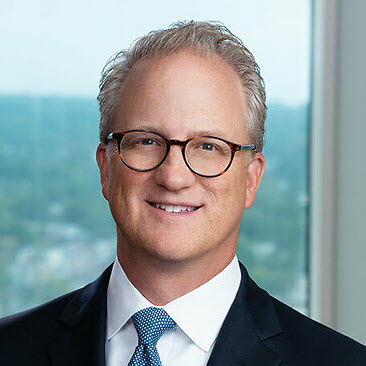
Todd Flubacher is a partner with Morris, Nichols, Arsht & Tunnell, LLP, representing Delaware trust companies, individuals, and law firms throughout the United States on all aspects of the creation, migration, modification, and administration of Delaware trusts. His practice primarily emphasizes the unique advantages of Delaware trust law, including directed trusts, dynasty trusts, asset protection trusts, trust modifications, and tax planning. Todd has substantial experience with migrating trusts to Delaware, changing governing law, and modifying trusts by decanting, merger, and non-judicial settlement agreements.
As an estate planner, Todd assists high-net-worth clients with implementing planning goals, saving taxes, protecting assets, and managing and preserving wealth for future generations. He also works with executors of Delaware estates to assist with estate administration, probate and planning, and has a substantial fiduciary litigation practice, representing trustees, executors, and beneficiaries in all types of trusts and estates litigation.
Todd is a fellow of the American College of Trust and Estate Counsel, an Accredited Estate Planner® (AEP®) Distinguished, and was inducted into the National Association of Estate Planners & Councils’ (NAEPC) Estate Planning Hall of Fame in 2023. His articles have appeared in notable publications such as Estate Planning magazine and Trusts & Estates magazine and he is a recognized speaker, frequently appearing before professional and business audiences across the country and via webinar.

Matt Paxton is an industry leader in downsizing, estate cleanouts, and hoarding cleanup. His journey into the world of estate cleanouts wasn’t just a career choice—it was personal. After losing his father, stepfather, and both grandfathers within a single year, Matt was faced with the enormous task of clearing out their homes. In the process, he discovered that sorting through possessions wasn’t just about decluttering—it was about memories, legacies, and emotions. This eye-opening experience led him to start helping others who were going through similar transitions.
In 2006, Matt Paxton launched Clutter Cleaner after finding his purpose in life: helping families clean out their cluttered homes. Matt experienced the joy of hearing people tell their personal family stories as they sorted through old books, pictures, china, and collectibles. During estate cleanouts, he has found buried jars of money, rare paintings, priceless treasures, and trash, but the personal stories keep Matt working. Matt created Clutter Cleaner so families could have a positive experience sharing their stories while still emptying their homes, allowing them to celebrate the past and move forward.
Matt’s expertise quickly gained attention, and he soon became one of the most recognizable faces in the industry, starring in the hit TV show Hoarders. Matt’s dedication to honoring people’s stories took center stage with his PBS show Legacy List with Matt Paxton, where he and his team help families uncover hidden heirlooms and memories embedded in their possessions. With his latest show, Filthy Fortunes, airing on the Discovery Channel and streaming on MAX, Matt continues to entertain and educate families across the country.

Alan Rothschild is an attorney with Page, Scrantom, Sprouse, Tucker & Ford, P.C. in Atlanta. He has practiced estate planning, taxation and tax-exempt law in Columbus and Atlanta for over 35 years. In the estate planning area, Mr. Rothschild works with individuals and their advisors to design estate plans that effectively address each client’s unique tax, business and family goals. Much of his work in this area focuses on successful strategies for multi-generational wealth succession planning, including the transition of family businesses and family lands to future generations.
Mr. Rothschild also has extensive experience advising clients on the design and implementation of thoughtful and effective charitable gifts – both while the client is in life, through techniques such as private foundations, donor-advised funds, conservation easements and charitable trusts, and at death, through their wills and testamentary trusts. A substantial part of Mr. Rothschild’s practice is dedicated to the representation of tax exempt organizations throughout the southeastern United States. Representative clients include university-related foundations, family foundations, community foundations, and regional non-profits in the areas of education, the arts, social services and religious activities. Since, 2015, Mr. Rothschild has served as an Adjunct Professor at the University of Miami School of Law, where he teaches a course in the Master of Law program on Charitable Giving and Exempt Organizations.

A founding partner of Harrison LLP, Louis Harrison’s practice encompasses all aspects of trust and estate planning, including estate and business planning for closely held companies. In addition to individuals in need of sophisticated planning, Lou represents numerous family offices, public figures, CEOs of public companies, closely held businesses, and other entities and prominent individuals.
Lou is a frequent keynote speaker, and he has written more than 200 articles on a broad range of estate planning topics which have been published in legal, accounting, tax, and estate planning journals and periodicals. Lou is a Fellow with the American College of Trusts and Estate Counsel, previously serving as its Illinois state chair. Lou has also been an adjunct professor at Northwestern University School of Law, DePaul University College of Law, and Chicago-Kent College of Law.
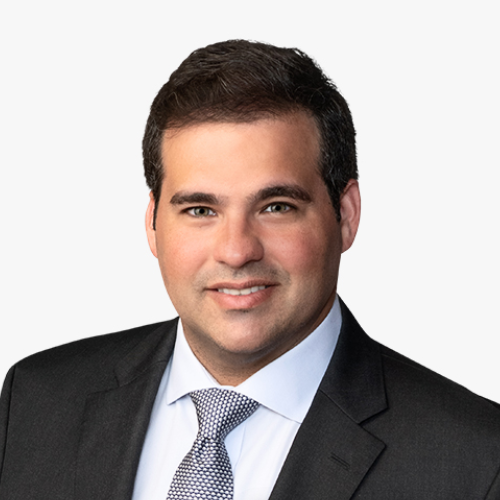
Sebastian Orozco Segrera focuses his practice on US and international estate, gift, and income tax planning and compliance.
Sebastian advises non-US individuals on structuring investments in the United States, optimizing their holdings for heirs or beneficiaries in the United States, and preimmigration planning. He also counsels US individuals on US and international matters, such as tax planning related to foreign trusts and structuring foreign investments. Sebastian has also helped multiple clients navigate expatriation from the United States.
Prior to McDermott, Sebastian served as a judicial law clerk at the US Tax Court. Sebastian earned an LL.M. in Taxation with honors from Georgetown University.

Amanda Koplin, LPC is a mental health entrepreneur and thought leader who creates innovative solutions to fill gaps in the mental healthcare system. In 2014, she created and developed an idea for a mental health urgent care clinic, which is now Koplin Consulting, a nationwide concierge mental health treatment team service. Amanda is passionate about helping people achieve mental wellness and creating sustainable support systems and solutions which integrate seamlessly into real life. She is a speaker and a nationally sought after consultant who specializes in creating unique treatment plans and recommendations for individuals struggling with psychological concerns such as addictions, eating disorders, lack of motivation, and other issues impacting mental wellness. She is particularly adept at involving trusted advisors and family members in order to create the greatest impact. Amanda received two bachelor’s degrees and a certificate in substance abuse prevention from the University of Oregon, and attended Yeshiva University’s Albert Einstein’s College of Medicine where she received her Master’s in Mental Health Counseling. Following graduate school, she did in-home counseling for children in family court and children charged with felonies in New York City., which is where she learned the impact of working with people in real life and working with all of the systems involved with the person of concern. This job not only influenced Amanda’s philosophy regarding mental health treatment, it inspired her to develop her own practical, real life solution in the form of Koplin Consulting. Her mission is to help others recover their quality of life.

Robert S. Keebler, CPA/PFS, MST, AEP (Distinguished) is a partner with Keebler & Associates, LLP and is a 2007 recipient of the prestigious Accredited Estate Planners (Distinguished) award from the National Association of Estate Planners & Councils. He has been named by CPA Magazine as one of the Top 100 Most Influential Practitioners in the United States and one of the Top 40 Tax Advisors to Know During a Recession. His practice includes family wealth transfer and preservation planning, charitable giving, retirement distribution planning, and estate administration. Mr. Keebler frequently represents clients before the National Office of the Internal Revenue Service (IRS) in the private letter ruling process and in estate, gift and income tax examinations and appeals, and he has received more than 250 favorable private letter rulings including several key rulings of “first impression.” He is the author of over 100 articles and columns and is the editor, author or co-author of many books and treatises on wealth transfer and taxation. Mr. Keebler has been a speaker at national estate planning and tax seminars for over 25 years including the AICPA’s: Estate Planning, High Income, Advanced Financial Planning Conferences, ABA Conferences, NAPEC Conferences, The Notre Dame Estate Planning Conference and the Heckerling Estate Planning Institute and is the immediate past chair of the AICPA’s Advanced Estate Planning Conference.

Lee Poskanzer is the CEO of Directive Communication Systems (DCS), a technology company delivering digital assets property succession management solutions for stakeholders involved with an individual’s death. Lee is an established and respected authority on the digital afterlife having contributed to and appeared in several articles and features for leading press including TechCrunch, Wall Street Journal, CNBC.com, Wealthmanagement.com, and Trust and Estates Magazine. Mr. Poskanzer has also provided continuing education for the American Bar Association, ACTEC, state and local Bar Associations, NAEPC chapters, and other groups. DCS has been recognized with The National Law Journal’s Trailblazer Award for accomplishments in legal technology.
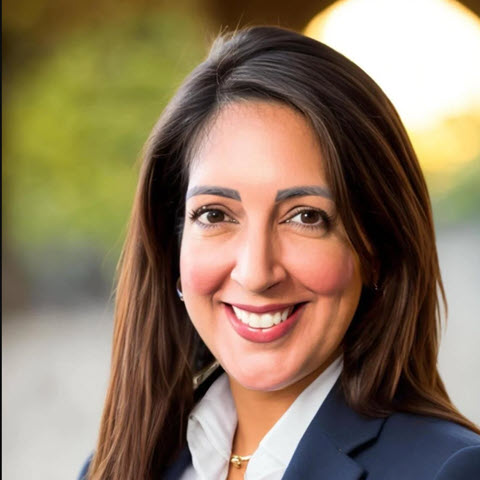
Sonia Muñoz Gallagher is the founding attorney of Family Wealth Law, LLC, based in Coral Springs, Florida. Her practice focuses on Estate Planning, Probate, Special needs planning, and Business Succession. She works with families and business owners throughout the state of Florida in both English and Spanish, with a particular focus on serving Hispanic families.
Ms. Muñoz Gallagher has more than 20 years of legal experience, having served as a commercial litigation attorney, immigration attorney, and in-house counsel. Throughout her years practicing Immigration law, she helped foreign nationals launch businesses in the United States, represented families and entrepreneurs in a wide range of Immigration matters, and defended clients in removal proceedings. Today, she draws on her background in psychology and business to guide both domestic and International clients through Probate and Estate Planning with legal expertise and a practical understanding of family and cultural dynamics.
She regularly presents webinars and in-person seminars on estate planning, probate, and protecting generational wealth, providing education and practical guidance to families, professionals, and community organizations.
She is also the founder of Mami Means Business™, a bilingual education platform offering legal templates and courses to help entrepreneurs protect and scale their online businesses.Through both of her ventures, Ms. Gallagher is dedicated to empowering families and business owners to build and protect generational wealth.